
THE PANDEMIC Sustainability Report 2020
NAVIGATING THROUGH
Never before has the resilience of our business been tested so robustly. However, being a sustainable business means being able to weather this, and future storms, and MSC Cruises has risen to the challenge.
 PIERFRANCESCO VAGO, EXECUTIVE CHAIRMAN
PIERFRANCESCO VAGO, EXECUTIVE CHAIRMAN
2
Introduction 4 Building resilience through sustainability 6 Preparing for the future 8 2020 at a glance 10 Our company values 11 Our approach 12 Business conduct and ethics 14 Working in partnership Responding to the COVID-19 pandemic 16 An unprecedented crisis 18 Crisis response 22 Pausing operations 30 Preparing for restart 36 Restarting operations Sustainability action 40 Planning for the future 42 Taking action on decarbonisation 48 Taking wider action on sustainability 52 Health & safety 54 Creating a strong supply chain 56 People 58 MSC Foundation 60 Data table SUSTAINABILITY REPORT 2020 3
BUILDING RESILIENCE THROUGH SUSTAINABILITY
2020 was a very difficult year for many people and businesses around the world, and the tourism and cruising sectors were particularly hard hit. Never before has the resilience of our business been tested so robustly. However, being a sustainable business means being able to weather this, and future storms, and MSC Cruises has risen to the challenge.
The threat from COVID-19 may never entirely leave us, and we are aware that a new variant or virus may disrupt our lives again. Safety must continue to be our number one priority and we must ensure that we have every protective measure in place, and that every MSC Cruises’ team member feels personally responsible, and fully participates, in helping to keep our colleagues, partners and guests safe.
Building resilience is about future-proofing our business. As we grapple with the enormous challenges caused by the pandemic, we are not losing sight of our commitments to be an ethical, as well as sustainable, company.
The climate crisis and biodiversity loss are of increasing concern, and while the cruise industry is only a small piece of the global carbon profile, we are nonetheless committed to playing our part in the solution. We continue to plan for a lower carbon future and are taking ambitious steps to reduce our ecological footprint by tackling pollution and emissions. We have pushed ahead with plans to support fleet decarbonisation by optimising our energy usage and continuing work with our maritime and energy sector partners to explore the implementation of new technologies and lower carbon fuel solutions. Despite the financial challenges we have faced this year, we remain firmly committed to becoming a zero emissions company.
We also take our responsibilities seriously as an employer. Employee wellbeing is a priority at the best of times but, in 2020, during the worst of times, it was more important than ever. After the outbreak of the pandemic and the halting of cruise operations, dedicated teams all over the world worked tirelessly to get the majority of our people back to their families, in spite of travel challenges and closed borders. We also offered additional support to those who remained onboard. While our entire fleet was laid up, empty of passengers, we kept in regular contact with all
our people, updating them on the ever-changing situation and providing guidance on how to keep safe.
Following this uniquely challenging year, I was particularly proud to be appointed Global Chairman of Cruise Lines International Association (CLIA) in January 2021. I look forward to leading our industry, as well as MSC Cruises, through the challenging restart phase. As MSC Cruises, we have already widely shared our industry-leading Health & Safety Protocol, which is being adopted by others in our sector as well as in the broader travel and tourism industry.
As we return to full operating capacity, and prepare to face the many challenges ahead, I look forward to achieving greater resilience through sustainability. Now, more than ever, we must seek to be a leading force for good in the world.
VAGO EXECUTIVE CHAIRMAN
As we grapple with the enormous challenges caused by the pandemic, we are not losing sight of our commitments to be an ethical, as well as sustainable, company.
INTRODUCTION SUSTAINABILITY REPORT 2020 4
PIERFRANCESCO
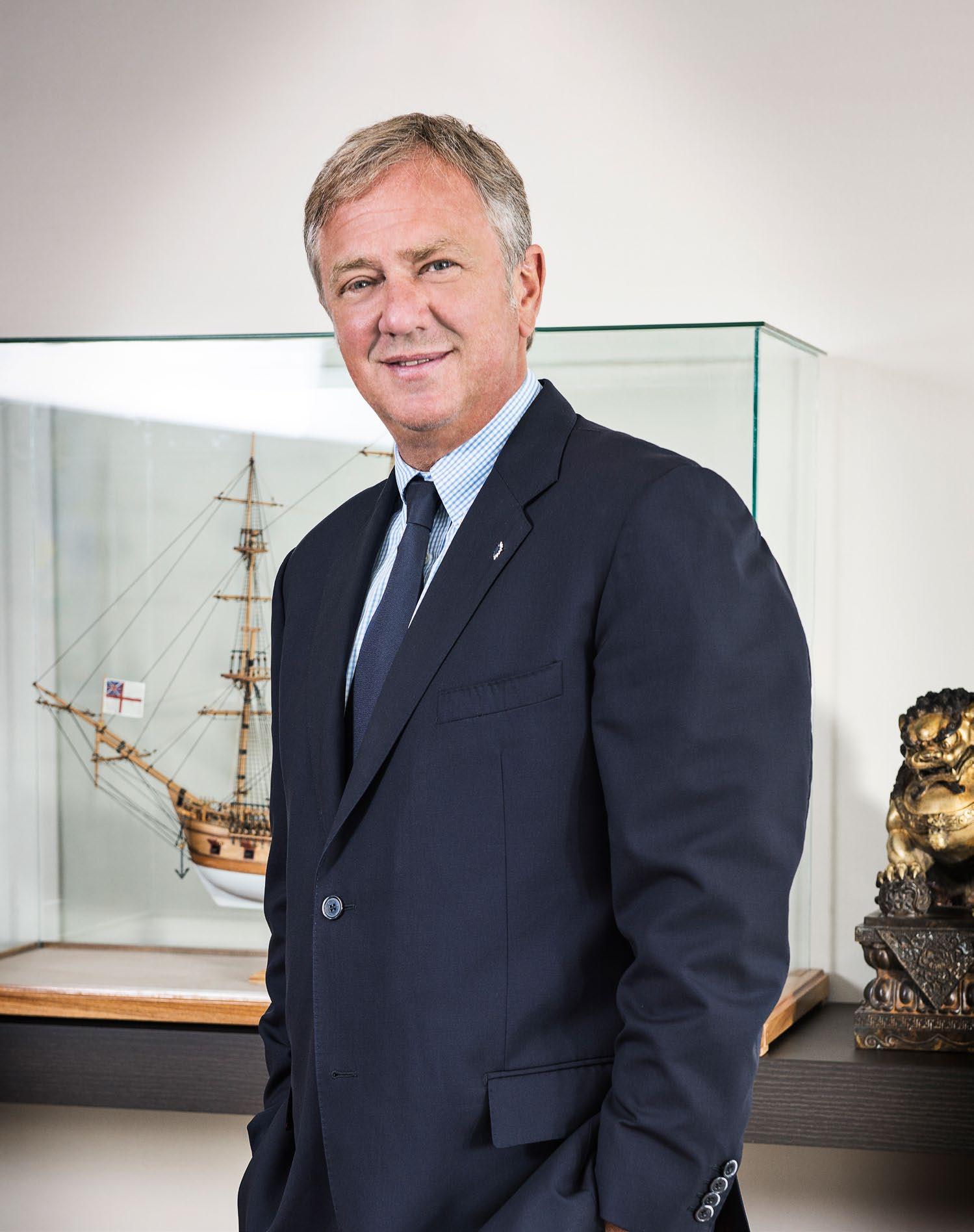
PREPARING FOR THE FUTURE
MSC Cruises is a truly global company, with routes that traverse the globe and passengers and crew from many countries. We have not experienced the coronavirus pandemic from a national perspective: we have experienced it as an international community.
With over two decade’s experience of operating cruise lines, we have always had rigorous health and safety procedures in place to prevent and manage cases of contagious illness. We never imagined our crisis management skills would be put to the test on such an enormous scale.
While 2020 was, in some ways, a year of waiting, we lost no time in using our own experience from the crisis to develop an industry-leading Health & Safety Protocol. We worked with a specially convened Blue Ribbon COVID-19 Expert Group to ensure that this protocol provided guests with a secure safety bubble from the moment of embarkation, to taking trips ashore, and their eventual return home.
Thanks to the new protocol, we were the first cruise line to get approval from the relevant national authorities in Italy, Greece and Malta – where our vessels would first call – to restart operations in August 2020. New measures included universal testing of all guests and crew, periodical screening while on board, plus robust contingency plans to manage any suspected cases with the local health authorities. We also worked closely with our network of tour operators to develop special shore excursions that ensure the safety of our guests and the communities we visit, by creating an extension of our safety bubble ashore.
I am extremely proud of how our crews and team ashore coped in the face of this unprecedented pandemic. In a matter of days, we saw tens of thousands of guests safely home, and began the mammoth task of repatriating the vast majority of our nearly twenty thousand crew members, leaving on board only the minimum safe manning and establishing a warm layup regime for our entire fleet.
For our crew, closed national borders and required isolation periods meant they faced incredible challenges and some of them were unable to return home for many months. We looked after them, moving them into our guest cabins with all the possible comforts, and provided additional emotional support services, including group and one-to-one psychological support with our specialised team ashore. Those who were required to isolate on board for health reasons, were given specific assistance to help combat loneliness.
We are continually adapting our protocol in response to the evolving pandemic situation and are in constructive talks with governments in all our key markets, who appreciate our robust and comprehensive approach and the valuable data and experience we have obtained from our successful restart in the Mediterranean. As soon as conditions allow, and we have the necessary approvals from national authorities, our fleet will be operational once more, allowing us to play our part in global economic recovery efforts. Once again, we will procure from our well-established network of hundreds of suppliers, who have supported us though this challenging period, and will be able to offer thousands of secure and well-paid jobs.
This report shares how we have navigated the difficulties caused by the COVID-19 pandemic, and how we have adapted our operations in preparation for the return of our guests. We very much look forward to welcoming back guests who are longing for some carefree leisure time – no other holiday option offers people such stringent health and safety protocols.
We very much look forward to welcoming back guests who are longing for some carefree leisure time – no other holiday option will offer people such stringent health and safety protocols.
INTRODUCTION SUSTAINABILITY REPORT 2020 6
GIANNI ONORATO CHIEF EXECUTIVE OFFICER

2020 AT A GLANCE
6,171
PLANNED COMMERCIALLY OPERATIONAL DAYS
19,502,736
PLANNED AVAILABLE LOWER BERTH (ALB) DAYS
Our fleet
1,543 ACTUAL COMMERCIALLY OPERATIONAL DAYS
5,011,719
ACTUAL ALB DAYS
3,061,946
ANTICIPATED GUESTS
685,247
TOTAL GUESTS CARRIED
679,514 PROJECTED FUEL CONSUMPTION
290,596 ACTUAL FUEL CONSUMPTION - 57%
All 17 ships in the MSC Cruises fleet were placed in layup by April 2020 due to the COVID-19 pandemic and only two ships become operational again later in the year. As a result, commercially operational days were down by
three-quarters compared with the previous year, and we were able to carry just a quarter of the guests. Fuel use data reflects fuel requirement for operational days as well as during warm layup of the fleet.
MSC LIRICA MSC ARMONIA MSC OPERA MSC SINFONIA MSC
MSC FANTASIA MSC
MSC
MSC
MSC
MSC
MSC
2005 2003 2012
MUSICA
ORCHESTRA
POESIA
MAGNIFICA
SPLENDIDA
DIVINA
PREZIOSA
-
75% - 78% - 74%
INTRODUCTION SUSTAINABILITY REPORT 2020 8
New ship delivery schedule
COVID-19 not only affected the operation of those ships in service, but also had the potential to seriously impact the delivery of new ships. Both the shipyards currently working with us on new build projects, in France and Italy, were shut for two months during the first lockdown period.
During this time, our new build team moved towards remote working, successfully maintaining contacts with all those involved and ensuring design and development works could continue as much as possible whilst construction work was temporarily halted.
The effective management of service provider resources has resulted in little to no delay of the build schedules. We agreed to slightly postpone the delivery of MSC Virtuosa until early 2021 and the delivery schedule of future vessels should not be impacted.
Future Growth
The existing orderbook has been confirmed until 2025, bringing on board new innovative environmental technologies, including three liquified natural gas (LNG) powered ships – the first, MSC World Europa, will be delivered in 2022.
2022
We fit our ships with the most advanced state-of-the-art environmental technologies available.
- MSC Grandiosa was certified according to the RINA Biosafe notation in 2020
- MSC Bellissima obtained a similar certification from CLASS NK in Japan

- MSC Seashore will be fitted with ‘Safe Air’ sanitation system
Orders have been confirmed for three liquified natural gas (LNG) powered ships – the first, MSC World Europa, will be delivered in 2022.
MSC
MSC
MSC
SEASIDE MSC MERAVIGLIA
SEAVIEW
VIRTUOSA MSC BELLISSIMA
MSC GRANDIOSA
2019 2025
COVID-19 brought new challenges but ultimately did not seriously impact impact our shipbuilders on their ability to deliver to new schedules.
TREVOR YOUNG, VICE PRESIDENT, NEW BUILDING AND REFURBISHMENT
2021
MSC SEASHORE
MSC SEASCAPE
INTRODUCTION SUSTAINABILITY REPORT 2020 9
MSC WORLD EUROPA
OUR COMPANY VALUES
Our company values are the cornerstones of our business, supporting our vision, shaping our culture, and establishing our future direction.
Our values guide us in embracing sustainable business practices, being a responsible corporate citizen and protecting our employees, guests and the communities in which we operate.
We are a
We have
Family Company
The commitment of the founding Family inspires us with dedication and trust, increasing our sense of belonging.
Sharing the family’s entrepreneurial spirit leads us to act proactively, courageously and responsibly in the best interest of our guests and our Company.
We are passionate about what we do, we challenge ourselves to achieve excellence and we are tenacious in overcoming obstacles.
Working together with passion and enthusiasm, we provide a unique experience for our guests.
We are in
Our tradition, expertise, professionalism and ambition drive the Company’s fast and sustainable growth.
We strive for the most innovative solutions to embrace change, always respecting safety and the environment.
We
We believe in
Passion ContinuousEvolution
We believe that each person brings unique value.
We develop authentic relationships built on ethics, respect and team spirit.
We truly care about the satisfaction and loyalty of our guests and employees.

Equal Opportunities
Our mission is to provide our people with personal fulfillment and enrichment.
We are committed to sharing our knowledge, delivering training and support enabling our people’s professional growth.
We ensure fair opportunities providing long-term career development, embracing diversity and valuing all cultures.
Care for People INTRODUCTION SUSTAINABILITY REPORT 2020 10
OUR APPROACH
We operate our business in a responsible way, and seek to be transparent in how we do this.
Governance
MSC Cruises’ activities are fully overseen by our Board of Directors, with the interests of our MSC Group shareholders and principal stakeholders represented. The Company works with other MSC Group companies to maximise opportunities and ensure new vessels meet the future needs of guests and the market.
Strategy
In 2019, we conducted a holistic materiality assessment, including peer analysis across the cruise, hospitality and shipping industries, as well as a programme of internal interviews. Our Sustainability Strategy focuses on the issues that are most material to our business and our stakeholders, where we can have the biggest impact.

The assessment, delivered by independent experts, highlights five issues as being especially important to our business: safety; reducing our greenhouse gas emissions; protecting biodiversity; waste management; and human rights.
We have aligned our sustainability approach to recognised international standards, such as GRI and SASB, and we are wholly committed to making a tangible contribution towards the UN Sustainable Development Goals (SDGs).
Risk Management
Risk is inherent in the cruising industry, operating large ships in a global environment. We have begun the process of identifying ESG risks, with a particular focus on transitional and physical risks associated with climate change.
The longevity of our assets creates a unique risk: the ships that we are designing today will be in service for at least 30 years and will therefore operate in a different regulatory environment from today. We must plan ahead, invest in R&D and prepare to retrofit our existing ships as new technologies emerge.
Metrics and Targets
Accurate data is crucial for measuring our impact and judging the impact of interventions. We collect and report data related to our material environmental impacts: air emissions; greenhouse gases; waste; and water. We support the International Maritime Organization (IMO) level of ambition for a 40% reduction in carbon emissions intensity by 2030, and a 70% reduction by 2050, both compared to the 2008 baseline. We also support a 50% reduction in total greenhouse gas emissions compared to 2008 levels by 2050, aiming to eliminate them as quickly as possible in this century. Our long-term ambition is to operate a truly zero emissions fleet.
We track and report data related to our people, such as: number of employees; average hours of training received; and retention rates. We also record the gender of our employees and have set a goal to achieve equal representation on our ships.
INTRODUCTION SUSTAINABILITY REPORT 2020 11
BUSINESS CONDUCT AND ETHICS
We have a comprehensive ethics and compliance programme.
All MSC Cruises’ employees must adhere to our Code of Business Conduct and comply with its supporting policies. In 2020, we made an online training module mandatory for all of our employees.
Regulatory compliance
We respect and comply with all applicable local, national, and international regulations, including but not limited to:
· International Maritime Organization (IMO) regulations
· EU regulations
· Flag State regulations and requirements
· Port State control inspections
· International Labour Organization regulations
· Fiscal obligations with respect to national tax authorities
· Numerous applicable national legislations related to activities including data privacy, anti-bribery and corruption, anti-money laundering and anti-tax evasion
· International sanctions regulations
Our activities also often go beyond regulatory requirements. For example, our latest ships are certified to several additional environmental and health and safety standards.
Human rights and labour
We believe that each person brings something unique to our business and we truly care about the satisfaction and loyalty of our employees, as well as our guests. MSC Cruises supports and respects internationally recognised human rights. We firmly condemn forced labour and any form of exploitation or slavery and comply with all applicable laws.
Non-discrimination
The diversity of employees is one of MSC Cruises’ greatest assets. MSC Cruises is firmly committed to supporting equal employment opportunities and does not tolerate any discrimination.
Freedom of association
All employees working for MSC Cruises shall have the right to join, not join, or form trade unions to bargain collectively on their behalf, in compliance with applicable laws and regulations.
Freedom from harassment
MSC Cruises does not tolerate any form of harassment or abusive conduct or any form of retaliation against any employee who complains about harassment. Harassment and abusive conduct can include:
· Acts or threats of violence (including gestures, language, and physical contact) to another person
· The intentional damaging of MSC Cruises’ property or the property of another person
· Any other behaviour causing others to feel unsafe in MSC Cruises’ workplace.
Anti-bribery
We strictly prohibit all corruption, and passive and active bribery. Such conduct can lead to the imprisonment and heavy fines for individuals and entities. We are committed to undertaking business fairly and to upholding all applicable anti-bribery laws in our business dealings worldwide.
Data protection
We protect personal data to the highest standards, with data minimisation embedded into all business activities, ensuring no more data is collected than is strictly
INTRODUCTION SUSTAINABILITY REPORT 2020 12
necessary. All privacy-related policies, procedures and contracts are streamlined to ensure all data processing activities ashore and onboard our ships are carried out in accordance with the requirements of the EU General Data Protection Regulation (GDPR), with this highest standard being applied globally.
An easy-to-use customer service platform allows guests to exercise their data subject rights, and goes beyond current standard practice. It allows for identity verification and guides users to submit a data request that will be processed quickly. The platform is available in the 14 languages that are used on MSC Cruises websites.
A tailor-made privacy training is mandatory for all our employees working in our ashore offices, as well as for the crew members working onboard our cruise ships

Whistleblowing
In October 2020, we introduced our whistleblowing ‘speak-up’ platform. Our aim is to enable the safe and secure reporting of fraud, abuse, corruption or danger to someone who can investigate.
Managed by a third party, the platform allows people to make reports, anonymously if they wish, which are then reviewed by the Company Compliance Officer and Operative Compliance Committee. Issues considered major are reported up to the Compliance Committee which includes the attendance of the CEO and Executive Chairman.
Sanctions compliance
In 2020, we developed a Global Sanctions Policy to ensure compliance with all applicable trade sanctions laws and regulations in regions in which we operate. This was finalised and put in place in early 2021. All potential suppliers of goods and services are required to sign a declaration to confirm that they are not restricted from conducting business under sanction laws. We have developed training on this to support employees in relevant areas of the business, including procurement, human resources and sales.
Our new global sanctions policy ensures we are compliant with sanctions laws throughout our supply chain.
INTRODUCTION SUSTAINABILITY REPORT 2020 13
SIMONE GARDELLA, CHIEF ADVISORY & AUDIT OFFICER
WORKING IN PARTNERSHIP
We recognise the value of working collaboratively with our partners to improve our approach to safety and enhance our collective sustainability performance.

During 2020, our relationships with numerous external organisations and associations helped us to address the immediate challenges of the pandemic. The cruise industry came together to communicate with regulators and other stakeholders, to better understand the implications of the situation, and, in particular, to assist in the development of industry and government guidance and standards.
Creating our new Health & Safety Protocol
In response to the pandemic, an internal task group worked on a new Health & Safety Protocol, analysing every aspect of cruise operations. A Blue Ribbon COVID-19 Expert Group of external scientific experts and medical professionals was formed to assist and advise us and review the final protocol.
We continuously collaborated with regional, national and local public health authorities (both directly and through CLIA) to ensure that the new protocol is fit for purpose and accepted in regions in which we intend to operate.
Supporting the development of new guidance
During 2020, we assisted CLIA in the development of policy and guidance around mandatory requirements on health and safety and the response to the pandemic for its ocean-going members. We also worked with them and the UK Chamber of Shipping on guidance documents for the UK on the safe restart of cruising.
Via the Swiss Shipowners Society, we provided support to the International Chamber of Shipping (ICS), in particular relating to seafarer welfare and freedom of movement. Our Blue Ribbon COVID-19 Expert Group guided our input to various guidance documents produced by others to facilitate the gradual restart of cruise ship operations. These included: EU Healthy Gateways, the European Maritime Safety Agency (EMSA), and the European Centre for Disease Prevention and Control (ECDC).
INTRODUCTION SUSTAINABILITY REPORT 2020 14
In response to the pandemic, an internal task group worked on a new Health & Safety Protocol, analysing every aspect of cruise operations.
Decarbonising the cruise industry
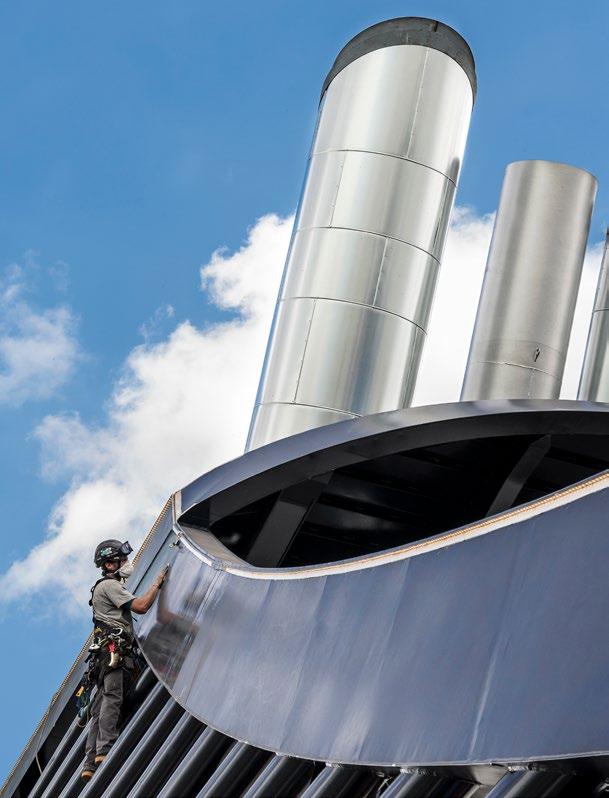
We continue to develop partnerships to enable new fuel and technology technology pathways. Focused on innovation, research and technology development to enable progressive reduction of emissions, and ultimately a zero emissions future for the cruise industry.
Our membership of, or engagement with, numerous organisations, including CLIA, ICS, BIMCO and the Society for Gas as a Marine Fuel, has ensured ongoing and important technical work to support industry decarbonisation.
At the end of 2020, MSC Group joined the Hydrogen Council, a global initiative with over 100 members. This brings together leading companies with a united vision and long-term ambition for hydrogen to be a part of the clean energy transition.
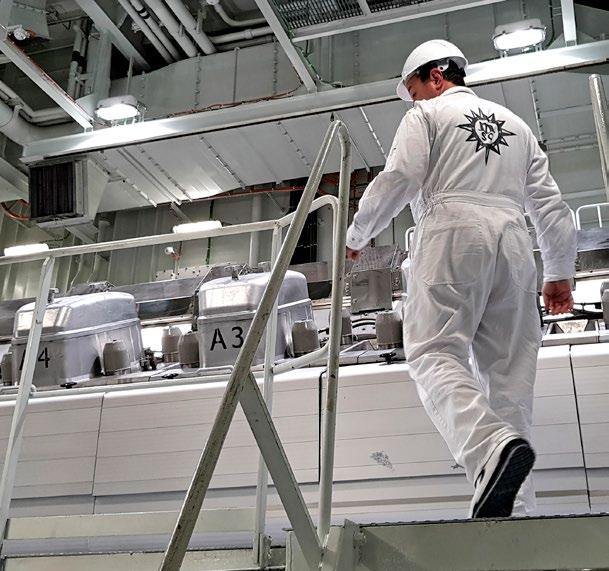
We are members of Norway’s Green Shipping Programme through which we work with other major cruise lines and local stakeholders to develop and communicate a roadmap for reducing emissions within Norwegian waters. Our proposals and commitments were well received by the local regulators as we collaborate on a way forward that continues to allow cruising, whilst seeking low emissions solutions.
In 2020, we submitted a successful proposal to the EU 2020 Horizon initiative, releasing funding to investigate multiple synergistic emission reductions measures on both cruise ships and bulk carriers. This is a collaboration with academia and technical solutions providers.
INTRODUCTION SUSTAINABILITY REPORT 2020 15
In 2020, we submitted a successful EU funding proposal to investigate multiple synergistic emission reductions measures.
RESPONDING TO THE COVID-19 PANDEMIC

AN UNPRECEDENTED CRISIS
When COVID-19 first began to spread around the globe early in 2020, the whole world knew very little about this virus. Yet, over the course of the year, everyone has been affected in some way. All industries and businesses have been impacted –for the cruise industry, so much so that we saw a complete halt of operations globally.
Our first priority was to get our guests home safely as soon as possible, and to repatriate our crew. This was a huge challenge as international travel was increasingly limited as borders were closing, mobility regulations increased, and some governments refused to take back their own citizens.
Next, we needed to arrange the safe layup of our ships, ensure the continued health and wellbeing of our onboard essential crew members, and prepare for a ‘new normal’ when operations could resume.
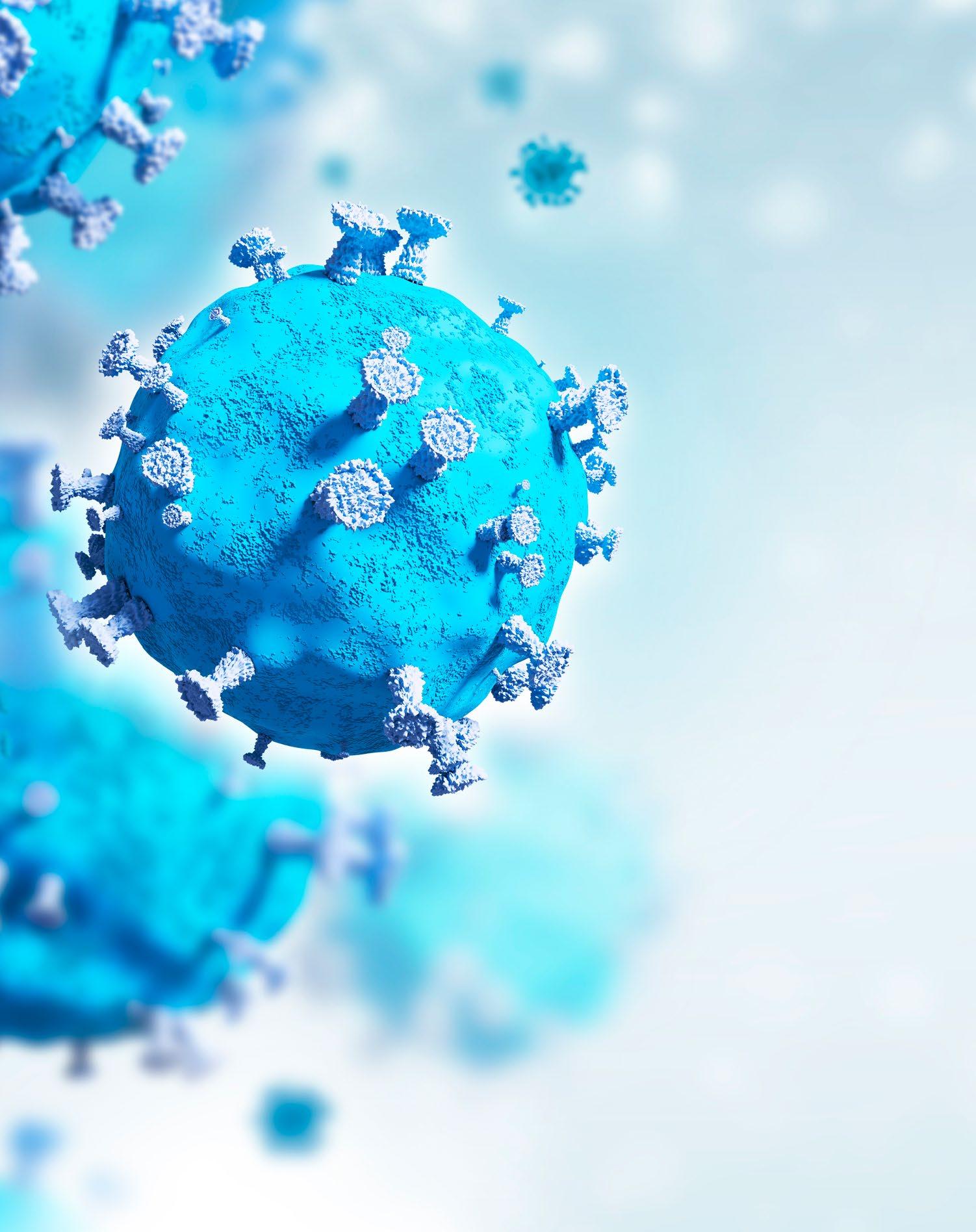
CRISIS RESPONSE
As soon as we become aware of the coronavirus outbreak in China in January 2020, immediate action was taken to ensure the health and wellbeing of our guests and crew on our global fleet.
By the end of January, we had extended public health measures across all cruise operations with the following additional requirements in place:
· Guests from all nationalities were required to fill out a pre-embarkation questionnaire to ensure no-one boarded a ship if they had travelled from or visited mainland China in the past 30 days.

· Mandatory non-touch thermal scanning of all guests and crew prior to embarkation, on every cruise we operated anywhere in the world.
· Embarkation was denied for anyone with signs or symptoms of illness, such as fever, chills, a cough or difficulty breathing.
· Elevated, deep sanitation on every ship in our entire fleet.
· Anyone who developed fever symptoms after they were on board were isolated in their cabin, as were their close contacts.
RESPONDING TO THE COVID-19 PANDEMIC SUSTAINABILITY REPORT 2020 18
Bringing our ships to shore
As the pandemic spread beyond China, we continuously adjusted to restrictions set up by local port and health authorities meaning our itineraries changed and cruises were cancelled.
On March 13th, CLIA announced an industry-wide decision, with all its members aligned on a halt to cruise operations. This led to numerous challenges for an industry which is ordinarily operational 365 days a year. The layup of entire fleets was completely unprecedented and constituted a significant logistical challenge. It also required finding immediate suitable berths or anchorages for the ships, and looking at options for long term layup, without knowing the extent of the crisis.
As the ships completed their final cruises, the Maritime Support Centre and crisis management teams worked tirelessly with ground operations team all over the world to support all our disembarking guests, some of whom required assistance with travel arrangements to get them home.
PRIORITISING THE SAFETY OF OUR GUESTS

Our last ship to go into layup was MSC Magnifica, which was part way through its 117-day World Cruise when the pandemic hit. Its last shore excursion was on March 10 th in New Zealand. On March 14 th , the ship’s captain made the difficult decision not to allow the guests to disembark in Tasmania.
When it reached Australia, the World Cruise was effectively cancelled. Guests were given the choice to either disembark, with permission given for them to go directly to the nearest airports for travel home, or they could choose to remain onboard to travel with the ship back to Europe.
Some guests chose to disembark in Melbourne, Australia on March 19 th , and were provided with travel assistance, either ground transport, rail or flights, if required.
However, with the creation of a sterile environment on the ship, most guests chose to remain, and for them and the crew life continued on board as normal. The ship docked in Marseille, France on April 24th, with no cases of COVID-19. The 1,770 guests were provided full assistance with transport and hotel stays, as needed, to support their journey home.
CASE STUDY
We worked tirelessly to support all our disembarking guests, some of whom required assistance with travel arrangements to get them home.
Tasmania had confirmed some COVID-19 cases and with many older guests onboard our ship, I was not prepared to compromise their safety.
RESPONDING TO THE COVID-19 PANDEMIC SUSTAINABILITY REPORT 2020 19
ROBERTO LEOTTA, CAPTAIN
Novel coronavirusSARS-CoV-2 identified
82 COVID-19 cases reported in 18 countries outside China
WHO declared COVID-19 outbreak a pandemic
Over 1 million cases of COVID-19 confirmed worldwide

Shutdown of global cruise industry

Flights chartered to overcome disruption to commercial travel
JANUARY FEBRUARY
Additional public health measures implemented on all ships as precautionary measure
Cruises originating in Shanghai cancelled and our ship repositioned to Singapore
Cruise itineraries continued to be reviewed and updated to cope with increasing port authorities measures and minimise risk
All MSC cruises cancelled and passengers began disembarking
75% of crew repatriated
MSC Divina sailed from The Bahamas to Europe, to support repatriation of over 1,000 crew to Europe and Africa
TO THE COVID-19 PANDEMIC SUSTAINABILITY REPORT 2020 20
RESPONDING
Second wave of COVID-19 infections lead to further lockdowns in Europe
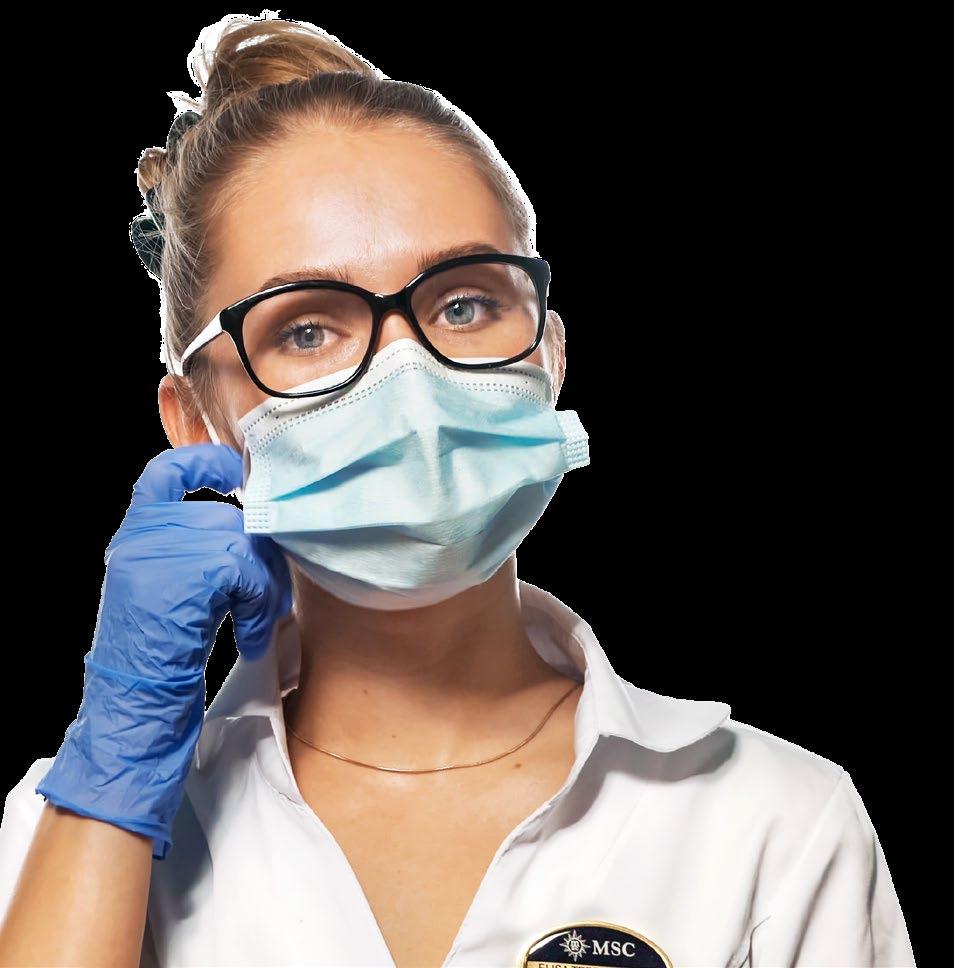
MSC Armonia sailed from The Bahamas to South America, to help repatriate nearly 300 crew
Over 90% of crew repatriated
Formation of Blue Ribbon COVID-19 Expert Group
Health & Safety Protocol shared with authorities
MSC Grandiosa returned to operations, offering week-long itineraries in Italy
99.9% crew repatriated
MSC Grandiosa received BIOsafe ship class notation from Classification Society RINA
Health & Safety Protocol received certificate of compliance for MSC Bellisima from ClassNK in Japan
-
-
MSC Magnifica returned to operations in Italy, Malta and Greece
Sailings temporarily suspended due to strict holiday season travel restrictions
SEPT
OCT NOV
DEC
RESPONDING TO THE COVID-19 PANDEMIC SUSTAINABILITY REPORT 2020 21
PAUSING OPERATIONS
The unprecedented layup of our fleet created a number of challenging circumstances which our teams worked tirelessly to resolve.
Repatriating our crew
When operations were paused in mid-March 2020, over 19,000 crew members were employed on board. With only around 1,000 crew required for minimum safe manning across the fleet, we needed to get the remainder – of over 100 nationalities – safely home.
At this point, our ships were spread around the world in Europe, the USA, Caribbean, Brazil, UAE and South Africa. Repatriation required extensive collaboration across the business, with internal reassignment of resources to make this possible.
Crew repatriation efforts began on March 12 th . As flight schedules were increasingly disrupted around the world, a dedicated team helped crew stranded in airports to find a new flight or a hotel room. From March 14 th to April 9th, this group of volunteers from corporate HR, crew development, corporate travel and the crew office worked around the clock to provide additional support to 943 crew making their way home.
Although the number of global passenger flights was down 50% in March, more than half our crew were able to take

RESPONDING TO THE COVID-19 PANDEMIC SUSTAINABILITY REPORT 2020 22
commercial flights home. Flights had fallen by 70% by early May and we relied heavily on chartered aircraft and government assisted flights to return our crew home – we repatriated 42% of our crew in this way. We also used our ships to move people: in May, the MSC Divina sailed from The Bahamas to Europe, carrying over 1,000 crew who could then continue their journey more easily from Italy, either overland or by air.
In some cases, we were attempting to repatriate our people to places with very restricted closed border access. By collaborating with local authorities, ensuring multiple COVID-19 testing regimes for our people, and working with numerous local organisations to provide approved quarantine facilities, we were successful in getting 62% of our crew repatriated by the end of March, and 92% by the end of June.
Our government affairs teams provided regular updates on the status of individual countries, and were in regular contact with national and local governments, embassies, and consulates. Daily (and often more frequent) updates with senior management ensured immediate approval for travel plans as they became available.
Over 100 crew members disembarked from our ships but then found themselves stranded due to flight cancellations. These people were neither able to continue their journey nor reembark due to the limitations placed on us by local health authorities. We bore all costs associated with their hotel accommodation and provided psychological support and assistance to get them home.

Repatriating 18,000 crew members just as international travel networks and borders worldwide were rapidly closing was a monumental undertaking. Our seafarers at that time represented more than 100 nationalities, and we worked with governments and local authorities across the world to get everyone safely back to their homes and families.
RESPONDING TO THE COVID-19 PANDEMIC SUSTAINABILITY REPORT 2020 23
BUD DARR, EXECUTIVE VICE PRESIDENT, MARITIME POLICY AND GOVERNMENT AFFAIRS, MSC GROUP
SPOTLIGHT GETTING HOME
Crew safety
The crew that remained on board to fulfil the minimum safe manning requirements, or to wait for repatriation, were given guest cabins, with balconies as these became available.
We implemented a stringently enforced colour coded system of our ships, which determined the specific procedures for social activities and the delivery of meals.
For instance, a ship was coded as green if there had been no positive test results for at least 14 days, meaning the bars, gyms and pool could be open.
On a ship deemed orange or red – with a recent or current positive test result within the previous fortnight – all socialising was halted, and crew were quarantined in their cabins when they were not working.

Crew welfare
Our Crew Strategy and Development Team took care of the crew onboard, supporting them with updates on the ever - changing health and travel circumstances. They also stayed in close contact with our local employment agencies around the world, many of whom provided vital assistance with repatriation efforts. This regular communication ensured that the families of those on our ships were kept fully updated.
In conjunction with the internal communications team, the team rapidly established a new web-based platform to provide crew with easy access to engaging content. This included articles on health and wellbeing to support them whilst on the ship, as well as online games, quizzes and stories and a notice board to keep crew informed of company and outside news.
In addition to the support provided by the crew support team, we brought in psychologists with expertise in crisis, disaster and trauma to provide specific support, including one-to-one psychological sessions as well as small group sessions, both via video calls. This was supplemented with educational videos on how to cope with stress and anxiety, broadcast on the crew channel.
I was working on the MSC Musica in Brazil when operations were cancelled. I didn’t want to leave the ship as it was probably the safest place to be at that time but MSC Cruises made sure I knew how to protect myself from the virus and gave me protective equipment for my journey home.
While I was onboard, the company kept us all updated on what was happening around the world. After I got home, I continued to receive encouraging emails, with advice on how to stay safe and protect myself. I hope we will soon be back at work although it has been good to spend this time with my loved ones during this difficult period.
RESPONDING TO THE COVID-19 PANDEMIC SUSTAINABILITY REPORT 2020 24
ESTHER MBUGUA, BAR WAITER, KENYA
PROVIDING PSYCHOLOGICAL COUNSELLING
Many crew members were required to self-isolate onboard the ships and our priority was to ensure comfortable surroundings. With loneliness a common symptom for those isolating, we knew we needed to ensure resources were available to provide them with the necessary support. We began by creating a dedicated crew support team and providing a hotline service. This was operated by 30 personnel from South Africa, the USA, Brazil, Italy and Switzerland, and covered six different languages.
Each ship was provided with the direct contact number for specific support team members, allowing calls and messaging by those on board, and we trained every support team member specifically on how to help those in isolation.
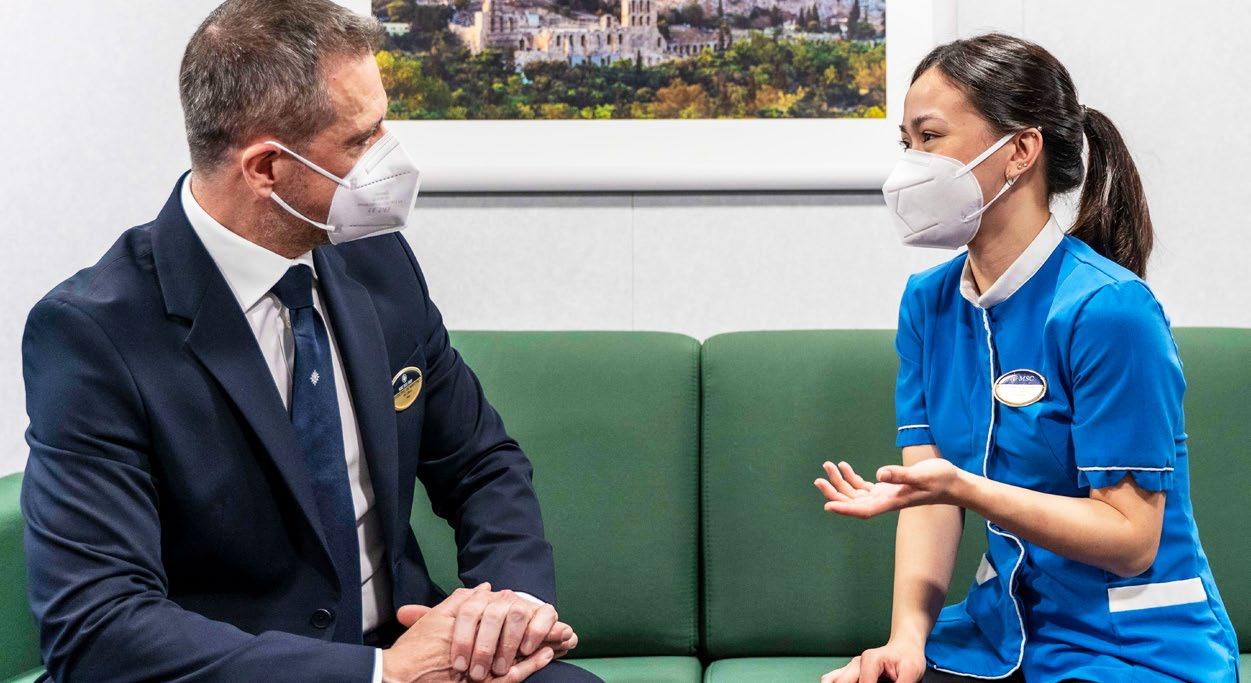
CASE STUDY
The Crew Support Team and hotline were practically created overnight, to ensure the crew were cared for. They were isolated and missing their families. Making them feel supported and cared for really made a difference.
RESPONDING TO THE COVID-19 PANDEMIC SUSTAINABILITY REPORT 2020 25
LAURA ROSASCO, CREW SUPPORT TEAM MEMBER
COPING WITH ISOLATION
Rishab Bumb is from Jaipur, India and works as one of our waiters. He had to remain on board MSC Grandiosa for months due to international travel restrictions that prevented him from going home. During this time, he tested positive for COVID-19 and remained in isolation for four weeks until his result came back negative.
Rishab was the first of many crew members who benefited from a dedicated psychological support service before he was finally able to disembark in June.

Crew Response
We asked our crew members to provide anonymous feedback on the measures we put in place to protect their welfare in 2020 and how they felt about returning to work.
over
15,000 responded
85 % found their local crewing agency to be friendly, responsive, professional or supportive
87% feel happy and hopeful when they think about their job
97%
are ready to go back to work with MSC Cruises
Shoreside support
The vast majority of our shoreside staff around the world began working from home. Around 70% of the global workforce took part in working time reduction schemes and one in eight of our team was furloughed. Our corporate and local human resources teams assisted them during these extraordinary times. We created a dedicated space on our intranet with weekly articles, learning resources and photo challenges to support their wellbeing and to update them on the situation.
We had already been in the process of introducing a leading global communication platform to keep the business connected and allow effective smart working, supported by an internal policy. With the start of the pandemic and the requirements for many employees to work from home, we facilitated the use of this tool globally. The human resources teams worked rapidly with our IT team to ensure a smooth transition for employees, with online training being provided on its use and application. Over 700 shore-based staff attended these sessions, supporting an effective transition to remote working.
SPOTLIGHT
During my time in selfisolation, I became very anxious. I was really worried because I didn’t know when I could see my family again. The one-to-one session with the psychologist was a game changer. He taught me great tools to feel more relaxed and ease my ongoing anxiety. I felt the positive effects immediately. I will be eternally thankful to MSC Cruises for all the support they have given me during the past few months.
RESPONDING TO THE COVID-19 PANDEMIC SUSTAINABILITY REPORT 2020 26
RISHAB BUMB, WAITER, MSC GRANDIOSA
Maintaining ship compliance
We needed to ensure that every ship remained in compliance with all the applicable safety and environmental regulations during layup, including ensuring each ship maintained a minimum manning crew. Never having experienced such a situation before, our safety and crisis management teams worked on revising existing protocols and developing new procedures to ensure safety and make sure our vessels’ operability was never compromised.
Despite the circumstances, each ship continues to require its crew to undergo regular safety drills and carry out the necessary maintenance, as well as implement the required COVID-related procedural changes for those returning to full operations.

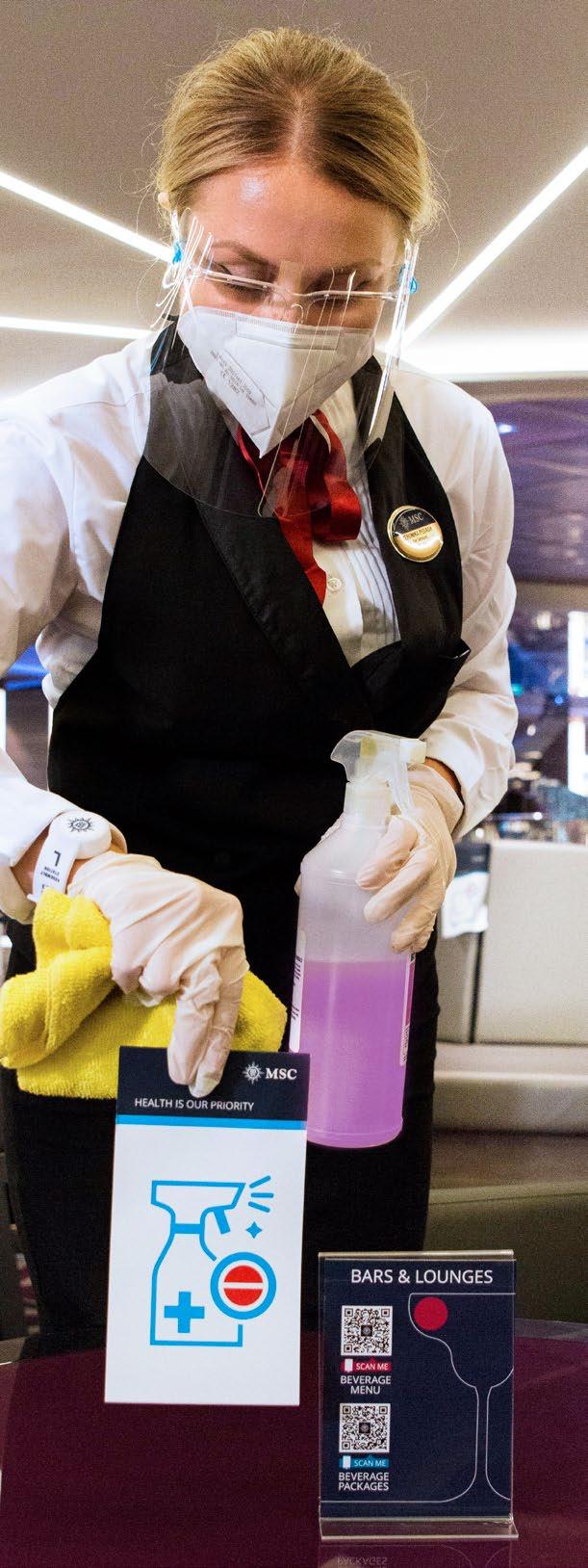
RESPONDING TO THE COVID-19 PANDEMIC SUSTAINABILITY REPORT 2020 27
We needed to ensure that every ship remained in compliance with all the applicable safety and environmental regulations during layup, including ensuring each ship maintained a minimum manning crew.
SPOTLIGHT CREWING AN EMPTY SHIP
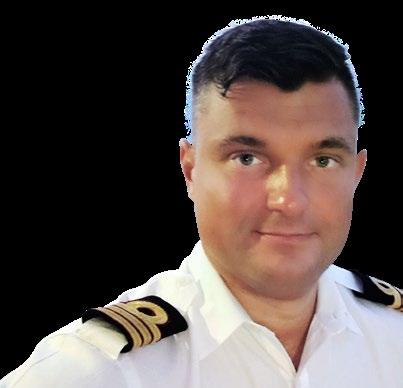
Waste and wastewater management
Under normal operations, disposal of waste streams, including treated wastewater, bilge water, solid waste and recyclables, is incorporated into a pre-voyage environmental plan, taking into consideration availability of port reception facilities. This ensures full compliance with international, national and local regulations throughout each cruise itinerary. It also enables the timely offloading of waste streams to ensure the storage capabilities on board are not compromised.
With ships having to remain in warm layup in specific locations, continued operations were required for those remaining on board, including the need to safely collect and store all waste. Each ship worked with the shoreside environmental compliance team to ensure a port call approximately every 40 days to safely discharge or offload waste.
Many ports, whilst remaining open for some limited services, implemented extraordinary measures such as restricting waste handling to control the potential spread of infection.
For those ships with advanced wastewater treatment systems (AWTS), which are capable of producing treated water close to tap water quality, discharge of treated water in port was permitted in some cases. The effluent was closely monitored for compliance and additional disinfection chemicals, such as chlorine, were incorporated at predetermined approved ratios per cubic meter. The effluent from the AWTS was periodically tested by an approved certified laboratory.
I stayed aboard the MSC Poesia after all passengers were disembarked in March. As First Engineer, it was my responsibility to keep all machinery working correctly, and to make sure the vessel was running safely once nonessential activities had been shut down.
Although the layup crew was much smaller than usual, each of us knew what needed to be done and we worked as a team to keep things ticking over.
It was strange to be on an empty ship and we missed the other crew, but we stayed busy and kept our mood up by playing sport. Free internet access meant we could keep in touch with our families too.
RESPONDING TO THE COVID-19 PANDEMIC SUSTAINABILITY REPORT 2020 28
VOLODYMYR KUKHAR, FIRST ENGINEER, MSC POESIA
Food safety and donations
As one of the few cruise lines to have attained the ISO 22000 standard for food safety across all food and beverage operations and for every ship in the fleet, we wanted to ensure that this was not compromised.
It was agreed with certification body, Bureau Veritas, that re-certification could be put on hold for those ships in layup. For MSC Magnifica, which returned to service later in the year, re-certification was carried out in accordance with the applicable procedures.
With operations paused, we had 97 containers of food and other items that were no longer required. We worked with the MSC Foundation to distribute these to local charities to help those in need in Italy, France, Spain and Portugal.

MANAGING OPERATIONS IN THE BAHAMAS

Ocean Cay Marine Reserve welcomed its first cruise ship guests on the December 5th 2019. Between then and March 2020, between two and three ships visited each week. By March 20 th, The Bahamas went into lockdown and the USA cruise industry had come to a halt.
Whilst many returned home, some employees remained to ensure the management of the island, including running
essential safety, security and environmental services, and to support the needs of essential crew on ships that were anchored off Ocean Cay. By the end of March, of the usual 120 Ocean Cay staff, just 52 operational staff remained, together with 15 contractors, reducing to fewer than 50 by July, as more employees were able to return home.
During layup, four of our vessels anchored off Ocean Cay. Managing bilge water, sludge and waste became particularly critical operational issues for these vessels. The rules of the US Centers for Disease Control and Prevention and the closure of ports in The Bahamas created challenges as ships reached maximum retention capacity. Whilst treated wastewater could be discharged outside The Bahamian archipelago in accordance with all applicable regulations, there were no readily available options for bilge, sludge, and other solid waste disposal. Thanks to our port operations team, we were able to establish specific dedicated safety procedures and permits were eventually granted for discharge at port reception facilities.
We distributed 97 containers of food and other items to local charities to assist those in need
CASE STUDY
RESPONDING TO THE COVID-19 PANDEMIC SUSTAINABILITY REPORT 2020 29
PREPARING FOR RESTART
New Health and Safety Protocol
Historically, our existing health and safety measures have proved successful across the fleet, with no confirmed significant outbreaks of transmitted diseases on our ships in any previous year. With the arrival of COVID-19, we carried out a complete review and expansion of existing measures to support a return to operations.
Our aim was to create a safe and virus protected environment that ensured the health of our crew and guests, without compromising on a relaxing and enjoyable vacation experience.
The Health & Safety Protocol was designed by in-house specialists in medical services, public health and sanitation, hotel operations, crew management, engineering systems, information technology and logistics. We were assisted in this effort by an expert third party consultancy, and through consultation with our Blue Ribbon COVID-19 Expert Group.
The new nine-point protocol encompasses a definitive set of rules and procedures that exceed guidelines provided by regulatory and technical bodies, including: routine testing of guests and crew; the mandatory use of face masks in all public areas; social distancing; protected shore excursions; and processes for managing confirmed cases.
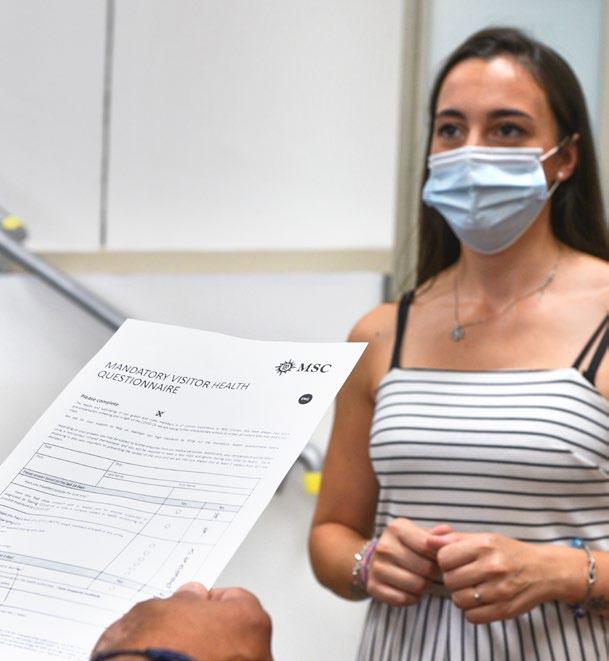
20,501 passengers since restart under new H&S Protocol
58,182 COVID-19 tests administered to crew and guests on cruises under the new H&S Protocol
440 people denied boarding (either through a positive test at the terminal, being in the social bubble with a positive case, being without required pre-travel paperwork, or for not complying with shore excursion requirements)
22,233 hours of new protocol training on MSC Grandiosa
As the COVID-19 pandemic evolved, more data and knowledge about the virus became available. An internal cross-functional task force was established to begin working on a robust Health & Safety Protocol that would enable us to welcome passengers back.
RESPONDING TO THE COVID-19 PANDEMIC SUSTAINABILITY REPORT 2020 30
MSC CRUISES NINE POINT HEALTH & SAFETY PROTOCOL
1
Testing of guests: Universal testing for all guests prior to embarkation, including a COVID-19 swab test, a health questionnaire and a contactless temperature check. Denied boarding for any guest showing illness.
2
Testing of crew: Crew are tested in their country of origin and again before embarking. They quarantine on board and take a third test before commencing work. They are then tested twice a month.
3
Only protected shore excursions: Safe shore visits are enabled through protected ‘bubble’ excursions with verification from excursion providers that they adhere to local health authority requirements.
4
Ventilation systems: Heating, ventilation and cooling systems ensure a total fresh air system with no internal recirculation. In medical or isolation areas, the air is under negative pressure, with filtration systems ensuring no mixing of air.
7
Masks: It is compulsory for all guests and crew to wear face masks in all public areas.
5
Contingency response: If a guest tests positive before boarding, both they and their travel group are not allowed to embark. Positive testing onboard will immediately initiate isolation and, if required, emergency disembarkation.
8
Physical distancing: Social distancing throughout the ship is enabled through maximum 70% ship occupancy, and reducing the number of guests allowed in all areas including restaurants, theater, spa and gymnasiums.
Isolation space on board and tracking and tracing Isolation areas are set aside for guest or crew who report sick. The ‘MSC for Me’ bracelets are used to support track and trace monitoring.
9
6 COVID-19 prevalence monitoring
Resulting in updating or amending of protocol if required.
CASE STUDY
RESPONDING TO THE COVID-19 PANDEMIC SUSTAINABILITY REPORT 2020 31
Assuring the Authorities
Having completed the new protocol, we then began the process of providing assurance to the authorities that our protocol is robust and effective. The nature of our business means that these discussions need to be replicated many times, with both national authorities and various local governmental and regional bodies at all the places of our itineraries. Having secured their support, we were able to resume some operations in August 2020.
Embracing digital solutions
To reduce direct contact, digitalised solutions, such as using QR codes in place of menus and contactless payment, were introduced and enhanced. Digital signboards throughout the ship and extensive information on dedicated TV channels in guest rooms further reduced the need for direct contact with crew members.
Guests on MSC Grandiosa were provided with the ‘MSC for me’ bracelet. This allows them to make payments throughout the ship, open their cabin door, and operate interactive screens around the ship, helping to reduce the number of times guests had to touch surfaces.
The bracelets also support track and trace monitoring by using Bluetooth technology to enable contact tracing based on specific parameters approved by our medical experts (and subject to strict privacy and security standards, as per GDPR). We were the first cruise line to utilise wearable technology on board in this way and it has been useful in effectively monitoring and containing the potential spread of the virus onboard.
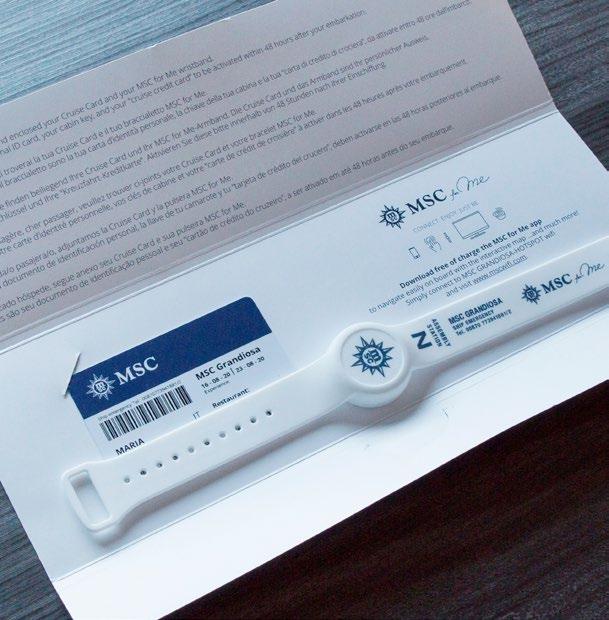
The fact that we were the first cruise line to be back in operation as early as August 2020 is proof that our protocol has been well accepted by authorities. Since then, we have been able to demonstrate that the protocol is effective.
RESPONDING TO THE COVID-19 PANDEMIC SUSTAINABILITY REPORT 2020 32
LUCA MATOLA, PROJECT LEAD, H&S PROTOCOL DEVELOPMENT AND IMPLEMENTATION
Blue Ribbon COVID-19 Expert Group
Having set up a cross-functional task force comprised of in-house experts to develop the Health & Safety Protocol, we also created a Blue Ribbon COVID-19 Expert Group comprised of international experts who support our ongoing work in this area. The group convened approximately ten times in 2020 to advise on the new protocol and provide ongoing advice following its implementation. The group also helped to keep
the business informed on the development of new technologies on testing mechanisms and vaccinations. These meetings continued into 2021, to provide additional support and advice beyond our own internal expertise. In addition, we have been able to draw on specific regional expertise within the group for support in areas where operational restart was planned.
Dr. Ian Norton


Specialist Emergency Physician, currently managing director of Respond Global, formerly the head of the World Health Organization (WHO) Emergency Medical Team Initiative program

Prof. Christakis Hadjichristodoulou

Professor of Hygiene and Epidemiology at the Faculty of Medicine as well as its Vice President, School of Health Sciences, University of Thessaly, Greece
Prof. Stephan J. Harbarth
Hospital Epidemiologist, Infectious Diseases Specialist and Head of the Antimicrobial Stewardship Program at the Geneva University Hospitals (HUG) and Faculty of Medicine
Dr. Jesus Arroyo
Specialist Internal Medicine, Geneva University Hospitals, Private practice, Geneva, Medical Affairs consultant, Trafigura Energy

Prof. Camillo Ricordi
Professor of Biomedical Engineering, University of Miami School of Medicine

RESPONDING TO THE COVID-19 PANDEMIC SUSTAINABILITY REPORT 2020 33
Our Blue Ribbon COVID-19 Expert Group supported the development of our Health & Safety Protocol and provided targeted expertise as needed.
CASE STUDY
UNIVERSAL TESTING FOR GUESTS, CREW AND VISITORS
Fundamental to the success of our new protocol was the introduction of universal testing for all guests, crew and visitors.
When cruise operations first resumed in August 2020, all guests were required to undergo an antigen COVID-19 test in the cruise terminal and only board the ship once they received a negative result.

Later, in response to increases in COVID-19 cases in many countries, an additional requirement was added for guests from high-risk areas, who were required to
show evidence of a negative PCR molecular or negative antigen test prior to arrival at the cruise terminal. Furthermore, our protocol requires that all guests are antigen tested midway through the cruise to be assured of their continued safety.
For our crew, even more rigorous testing and health screening protocols are in place. This includes a PCR molecular test in their country of origin prior to starting their journey to the ship. Every crew member is then antigen tested again on arrival at the terminal before
embarking onto the ship. All crew are then required to isolate onboard for 14 days and will only commence working on board once a further PCR molecular test has provided a negative result. They are then tested weekly, using a combination of antigen and PCR molecular testing.
PPE, testing regimes and restrictive measures are also in place for any visitors or technician boarding the ship and for those working on ships in layup. Pre-embarkation tests are carried out, as well as measures to limit contact with others on board outside of working hours.
The routine and regular testing of both our crew and our guests has allowed us to operate successfully and safety. It is the cornerstone of our new Health & Safety Protocol.
RESPONDING TO THE COVID-19 PANDEMIC SUSTAINABILITY REPORT 2020 34
DR.PIERFRANCESCO LEPORE, VICE PRESIDENT MEDICAL SERVICES
Crew training and preparedness
Extensive training programmes were put in place in preparation for restart. During the mandatory quarantine required for crew when they returned to the ship, we used several platforms for crew learning. Training on the new Health and Safety Protocol was provided via our e-learning platform, supplemented by TV broadcasting in the cabins and interactive video calls.
Once quarantine was complete, crew were then able to undergo job specific training organised by department heads under the strict control of the Health Protocol and Compliance Officer (HPCO) . This ensured that the crew were totally familiar with the new practices and procedures and could undertake their roles in line with the Health & Safety protocol.
In normal circumstances, many crew use the opportunity of shore visits to disembark the ship. During 2020 restart, negotiations with crew unions resulted in crew shore visits being put on hold, for their own protection. Safe shore excursion protocols for guests have proved successful, and it is the intention to extend these procedures to allow crew to make safe shore visits in the future.
Third party verifications
Classification Society RINA, a well-recognised independent maritime certification body, verified that the MSC Cruises Health and Safety protocol met the European Maritime Safety Agency (EMSA) and European Centre for Disease Prevention and Control (ECDC) Joint Guidance. The joint guidance incorporates additional health standards, including EU HEALTHY GATEWAYS Joint Action, which supports coordinated action to improve preparedness at points of entry.
The credentials of the Health & Safety Protocol were enhanced further when MSC Grandiosa, the first ship to implement the protocol, obtained the RINA ‘Biosafe Ship’ credential. This goal-based and voluntary notation confirms that the ship is equipped with the necessary systems, components, layout and operational procedures to reduce infection risk.
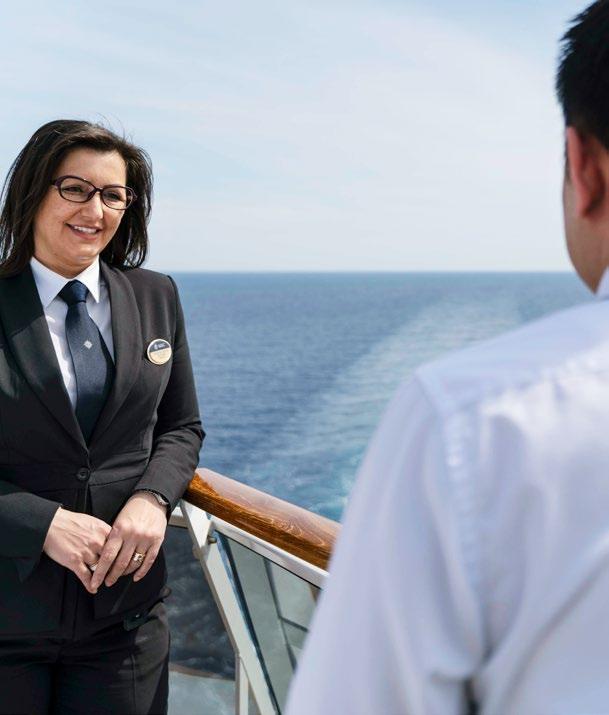
We spent over 22,000 hours training our crew on MSC Grandiosa for restart, including specific training of the new Health & Safety Protocol.
ANNA GIACOBBE, CREW TRAINING MANAGER
RESPONDING TO THE COVID-19 PANDEMIC SUSTAINABILITY REPORT 2020 35
RESTARTING OPERATIONS
To keep everyone safe on board our ships, the guest experience was modified in accordance with our Health & Safety protocol.
To ensure social distancing, we revised the procedures for safety drills for newly embarked guests. All guests were required to watch a safety video within their cabins and confirm completion by entering a code into the cabin phone. As part of the drill, guests were asked to proceed to the assembly points with staggered timings, ensuring social distancing could be maintained.
Enhanced medical services
The new protocol requires an increase in medical staff onboard, with the addition of at least one Heath Protocol & Compliance Officer (HPCO) on each operational ship and on those in layup, depending on the number of crew onboard.
ANDREA IMARISIO, HEALTH PROTOCOL & COMPLIANCE OFFICER
The HPCO ensures full and robust implementation of the protocol and works with the extended onboard medical team, as well as all onboard departments, to ensure appropriate training for the crew. The HPCO reports directly to the ship’s Captain. To ensure independence, the HPCO also reports directly to MSC Cruises’ CEO.
In the event of suspected cases, certain cabins are assigned for quarantine which are in a dedicated area of the ship with isolated air conditioning systems. The health authorities at the nearest port are contacted immediately, in accordance with the protocol and applicable laws, and the decision is made, together with the competent health authorities, as to whether or not to disembark them.
The mandatory requirement for all guests to have COVID-19 insurance ensures that any guest who presents symptoms and is detected as COVID-19 positive receives the treatment they need and are provided with case management and private transport to either their home or to quarantine facilities ashore.

During these unprecedented times, safety onboard must not be compromised. Our revised protocol ensures all ship safety training and safety drills can be carried out in a way that ensures adherence to social distancing rules.
RESPONDING TO THE COVID-19 PANDEMIC SUSTAINABILITY REPORT 2020 36
Ensuring essential supplies
Extensive quantities of protective personal equipment (PPE), cleaning supplies and testing equipment have been required from the start of the pandemic. With the number of crew onboard, we needed a large and constant supply to all our ships in layup in Europe, South Africa, Brazil, the USA and Caribbean.
The pandemic and consequent halting of cruise operations meant that we had to cancel or delay orders across our entire supply chain. This has directly impacted hundreds of core vendors who supply essential items to our ships.
It has also impacted those who provide supplies and services to support the growth of the company, including upgrading our existing ships and supporting the delivery of new vessels. This situation required careful and sensitive interactions with our suppliers who, under normal circumstances, we rely on for frequent and timely deliveries.
SPOTLIGHT ADAPTING OUR APPROACH
“When the virus struck, we reacted quickly to put the brakes on our supply chain operations.

“This meant working with our suppliers to slow, delay or stop orders, ensuring that these supply chains could be ready to restart again at short notice.

“Good communication was crucial: to understand how our suppliers were also being impacted by the crisis so we could work out together how to best serve one another. This involved reviewing commercial terms and, where possible, putting orders into a hold status instead of cancelling them.
“The next challenge was sourcing new safety items like personal protection equipment and COVID-19 tests at such scale. Demand significantly exceeded supply, but we reacted quickly and established relationships with selected global manufacturers. We also began exploring innovations that could support the restart of operations, such as sanitation tunnels for supply delivery. We are spread across Geneva, London, Sorrento, Miami and Shanghai so we instigated a daily team meeting to enable effective communication and action.”
When the virus struck, we reacted quickly to put the brakes on our supply chain operations.
RESPONDING TO THE COVID-19 PANDEMIC SUSTAINABILITY REPORT 2020 37
JAMES MCINTYRE, PROCUREMENT DIRECTOR
A ‘new normal’ shore experience
Finding a balance between ensuring the safety of our crew and guests, providing a meaningful guest experience, and continuing to provide value to our local communities, have required reimagining shore excursions.

Incorporated within our new Health & Safety Protocol are specific requirements associated with embarkation, disembarkation and excursions.
With mandatory - and often multiple - testing prior to embarkation, the protocol for shore visits needed to ensure the continued safety of all those involved. We needed measures to ensure that our guests remain protected from those who have not been subject to this regime.
All local tour operators must follow strict operating procedures, with excursions in a bubble environment, and guests remaining within one small group throughout the shore visit. COVID-19 testing of tour guides, bus drivers and any other shore personnel who may come into close contact with guests is required on the morning of the tour. All tour operators and guests must wear masks for the entirety of the shore excursion.
The effective enforcement of safety measures meant that in some cases, guests have been denied reembarkation if they did not adhere strictly to the shoreside excursions provisions.
Our return to the sea in the Mediterranean demonstrated that cruises can be one of the safest holiday options available, with our unique and robust protocol that keeps our guests safe, and does not compromise the safety of those in the communities we visit.
GIANNI ONORATO, CHIEF EXECUTIVE OFFICER
RESPONDING TO THE COVID-19 PANDEMIC SUSTAINABILITY REPORT 2020 38
photo: Daniele di Maria ®
TAKING GUESTS SAFELY ASHORE
“When we began welcoming back guests in August 2020, we had to rethink how we managed shore excursions. We needed to reassure our passengers that it was safe to leave the ship and then make sure they were not bringing the virus back on board with them. We also needed to protect the communities that we visited and demonstrate that we were not putting them at any risk.
“We only allowed people to disembark if they were booked on an MSC - organised excursion where we knew our strict health and safety measures were being met. Guests could no longer get off the ship on their own but instead had to be part of a ‘tour bubble’ – we escorted them throughout, and guests who ignored our protocol and went off on their own returned to the terminal and found that they were not allowed on board.


“We worked hard to make sure every risk was properly managed: we coordinated with ports to avoid overcrowding when disembarking passengers; we checked everyone’s temperature when they left the ship, and again when they returned; our tour guides wore PPE and had undergone a health screening; we booked time at sight-seeing attractions when we could have space to ourselves; and all our transfer vehicles were properly cleaned and sanitized before each use.
“Despite these restrictions, our shore excursions remained really popular. Our guests know we have high standards around health and safety onboard and I think it was reassuring for them to see that we were being just as rigorous on shore.”
SPOTLIGHT
We only allowed people to disembark if they were booked on an MSC-organised excursion where we knew our strict health and safety measures were being met.
RESPONDING TO THE COVID-19 PANDEMIC SUSTAINABILITY REPORT 2020 39
MARIALUISA IACCARINO, HEAD OF SHORE EXCURSIONS
SUSTAINABILITY ACTION

PLANNING FOR THE FUTURE
The pandemic has been a clear reminder of the fragility of the planet, and the need for immediate action. With most ships in permanent layup after March 2020 for the remainder of the year, our crew worked closely with onshore teams to ensure environmental compliance across the fleet.
We also took the opportunity to continue planning for the future, working collaboratively to identify ways to manage emissions from our fleet, reduce our use of plastic and the creation of waste, and lessen our impact on marine life and biodiversity. All this, while never losing sight of the central importance of building a loyal and committed team who want to grow their careers with us, both on board and ashore.

TAKING ACTION ON DECARBONISATION
The
of air
Energy efficiency
Despite the challenges of 2020, we continued to look for ways to improve the efficiency of our existing fleet and optimise itineraries to further reduce fuel demand and ensure year-on-year progress. A core goal of MSC Cruises is to meet the industry target of 40% improvement in emissions intensity by 2030, compared to a 2008 baseline.

We use a dedicated data analysis digital process to ensure the continuous monitoring of ship energy usage. A cross functional team ensures efficiency measures are put in place. Additionally, we have collaborated with core business partners and the shipyards to support the overall challenge of emissions reduction, through operational optimisation and ship infrastructure energy footprint reduction.
CASE STUDY
OPTIMISING ENERGY USE ON MSC GRANDIOSA
During early 2020, the crew of our newest ship, MSC Grandiosa, supported the implementation of Ecorizon, an innovative process of ship energy optimisation supported by a digital optimisation tool. This collects extensive amounts of data using onboard automation systems and sensors, allowing a very precise status report on the energy profile of the ship. The information collected is then compared with a dynamic digital twin, to guide onboard operators to improve operational profiles and voyage management.
Implemented by the energy efficiency management officer and a team of energy specialists from the Chantiers de l’Atlantique shipyard, it has enabled fine-tuning and numerous adjustments to be made aboard MSC Grandiosa.
Overall, this set of measures eliminated approximately 15 tonnes of fuel per day during cruise operations
between August and December, equating to a reduction of 47 tonnes of carbon dioxide per operational day. Compared to MSC Grandiosa’s performance at the beginning of the year this equated to a 4% reduction in energy demand.
serious impacts
pollution and climate change – economically, socially, to heath and biodiversity –are becoming increasingly apparent. We are clear on the need to reduce substantially our emissions and to find clean energy solutions.
The immediate and positive results from our Ecorizon energy optimisation initiative created the stimulus onboard to seek further improvement. It was very much a collaborative effort, with deck, engine and hotels teams all having an important role to play.
ANTONIO IACCARINO, CHIEF ENGINEER, MSC GRANDIOSA
SUSTAINABILITY ACTION SUSTAINABILITY REPORT 2020 42

SUSTAINABILITY ACTION SUSTAINABILITY REPORT 2020 43
SPOTLIGHT
USING DATA TO DRIVE EFFICIENCY

“Better data has opened up a world of opportunities that perhaps only hardcore futurists dared to envision a decade ago. Our onboard engineers are now supported by integrated automation systems that aggregate and make sense of enormous quantities of data acquired by field sensors and machineries. Better data has enabled huge advances in how we manage our ships and has helped us to achieve our emissions reduction goals.
“Through monitoring equipment and onboard sensors, we can now logically connect technical elements, such as engines, hotel plants and machinery components, to operational factors, such as a ship’s itinerary, the number of passengers onboard, and weather conditions. This enables automatic adjustments to be made when the conditional factors change – a multifactor, iterative process of efficiency.
“Added to this is improved ship-to-shore connectivity and high bandwidth data transmission which has enabled us to feed onboard data into our complex data analysis system on shore. Our analysts can then review the information, gather insights, and make data-driven business decisions that optimise operations at all levels. They then relay smart advice to onboard operators on how to improve efficiency.”
Year-on-year improvement
By the end of 2019, we had achieved a 28% emissions intensity reduction (CO2 emissions per ALB/km) for the entire fleet compared to a 2008 baseline. The halting of operations early in 2020, and the ships being in layup, means that a realistic and comparable year-on-year measurement of carbon intensity is not possible.
We were able to make some comparison using 2020 data prior to the fleet layup, calculating a 2.5% improvement in emissions intensity across the fleet compared to the same period in 2019. Additional to this, we achieved a 4% reduction in fuel use per day with MSC Grandiosa when cruising restarted in August, compared to the prepandemic operations earlier in the year.
Continued collaboration
Collaboration is essential to enabling the decarbonisation of our industry. We provide support wherever we can to research and development of alternative fuels and new innovative technologies.
In 2020, we worked together with ship builder Chantiers de L’Atlantique, power solution provider Wärtsilä and the Bureau Veritas classification society to explore the use of new fuels to support decarbonisation in next generation cruise ships. This led to the ‘AFTER’ study, a collaborative project which will continue in 2021 to assess the feasibility of new fuel options, including methanol and ammonia on large cruise vessels.
We calculated a 2.5% improvement in emissions intensity when our fleet was fully operational in early 2020, compared to the same period in 2019.
Better data has enabled huge advances in how we manage our ships as well as helping us to achieve our emissions reduction goals.
SUSTAINABILITY ACTION SUSTAINABILITY REPORT 2020 44
ANDREA CROSETTI, ENERGY EFFICIENCY MANAGEMENT OFFICER
Future fuels
Lower carbon fuels are essential to meeting absolute emissions reduction targets. For our existing fleet, we continue to track availability of appropriate bio or synthetic fuels, and support government policies to enable their use from a commercial perspective.
Our first LNG powered ship will be operational in 2022, enabling a lower carbon footprint and significant reductions of SOx and NOx emissions compared to conventional propulsion. Two further ships powered by LNG are confirmed to enter service in 2023 and 2024. At least one LNG ship will be used as a test bed for solid oxide fuel cells, which can convert LNG into electricity and are much more efficient than conventional engines.
We recognise that LNG, although resulting in the lowest emissions at equivalent conditions of use of all fuels in commercial use for large ships, is nevertheless a fossil fuel and our long-term plan must be to transition to a lower carbon fuel. BioLNG or synthetic LNG could replace fossil-based LNG as a drop-in fuel allowing us to gradually introduce it as it becomes commercially available, without significant ship or onshore infrastructure modification.
CASE STUDY
PROMOTING INNOVATION
We continue to collaborate with other industry leaders in their fields to research and develop new solutions that will help the decarbonisation of shipping.
At the end of 2020, we learned that the EU Horizon 2020 fund, the EU’s framework programme for research and innovation, had awarded funding to a collaborative effort in which we were taking part. Known as the CHEK Consortium – led by Finland’s University of Vaasa – it will focus on combining progressive energy technologies and forward-thinking ship design to promote low-carbon maritime operations.
The project will seek to demonstrate the advantages of a variety of technologies and solutions including hydrogen propulsion, ultrasound antifouling, hull airlubrication, waste to energy systems and digitalised optimisation software, fully integrated to maximise efficiency across all aspects of ship operations.
Results are expected during 2023 and will be widely disseminated to support improved competency across the industry.
Our first LNG powered ship will be operational in 2022

We continue to collaborate with other industry leaders in their fields to research and develop new solutions that will help the decarbonisation of shipping.
SUSTAINABILITY ACTION SUSTAINABILITY REPORT 2020 45
EMILIO LA SCALA, PRESIDENT & CEO, MSC CRUISE MANAGEMENT
The ‘methane slip’ hurdle
One hurdle to overcome for gaseous fuels such as LNG is the potential for escaped unburned methane, or ‘methane slip’ in the dual fuel internal combustion engines. This can impact the greenhouse gas emission reduction levels that are embedded in LNG.
Power solution provider Wärtsilä is making progress to reduce methane slip from its new LNG dual fuel engines. Over the last 25 years, the potential for escaped unburned methane on dual-fuel engines has been reduced by more than 85% and, over the next three years, advances are expected to significantly reduce this further.
Although some current studies on the topic are still using data from older engines with higher methane slip, modern engine technology – including the engines that will be installed by MSC Cruises on its first LNG-fuelled ships –offers significantly lower methane slip and consequent overall greenhouse gas emissions compared to traditional marine fuels.
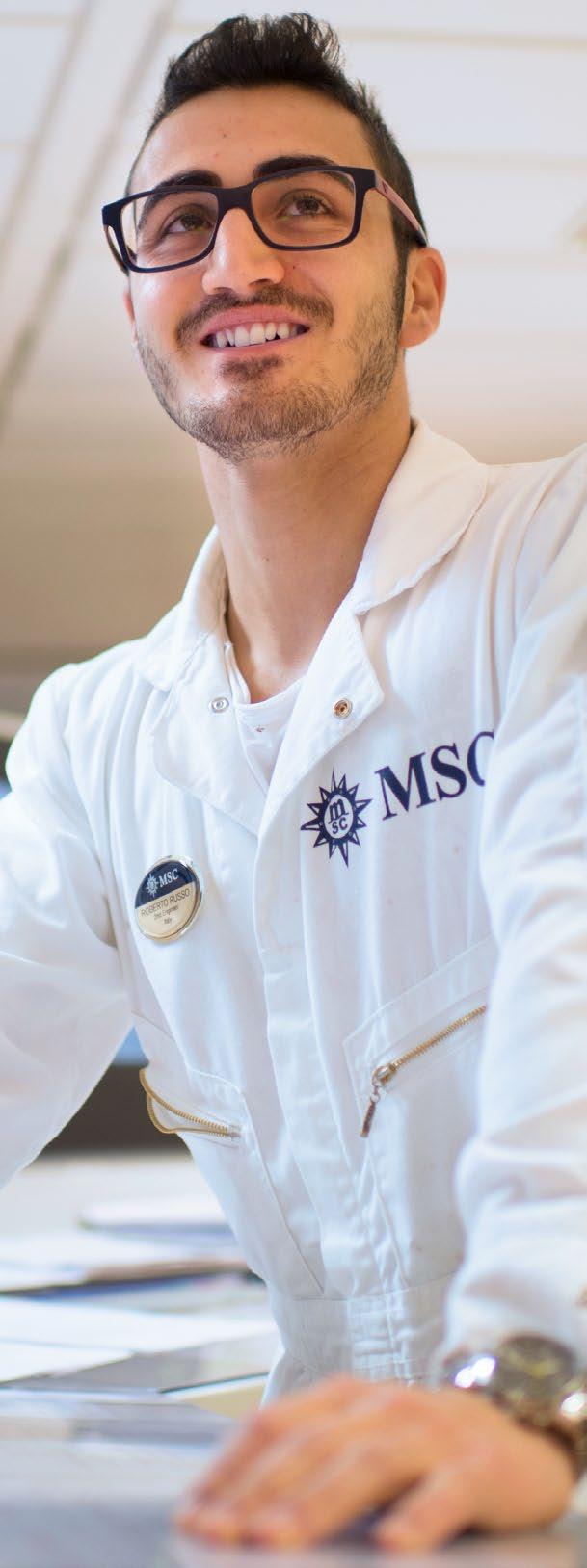
Taking methane slip into account, our calculations indicate that the engines for MSC World Europa have the potential to improve its greenhouse gas emissions profile by up to 20%.
STEFAN NYSJÖ, VP POWER SUPPLY, WÄRTSILÄ
SUSTAINABILITY ACTION SUSTAINABILITY REPORT 2020 46
ZERO EMISSIONS AMBITION
“At present, our industry is almost wholly reliant on fossil fuels. To achieve zero emissions, we will need to switch to new fuels and require the support of governments and regulators to enable this major transition in our industry.
“In the meantime, we are committed to improving the energy efficiency of our existing fleet, and are considering how best to prepare for the future. For example, we are investigating the use of low carbon fuels that, if available at scale, can replace existing fuels without significant modification of current machineries and systems.
‘’The ships that we are designing today will be operational for at least 30 years, so we need to think carefully to ensure we make the right decisions on propulsion technologies beyond 2025. This allows us to track the technical capability and commercial viability of lower carbon alternatives. We are currently considering all potential opportunities as we develop our roadmap for the future.”
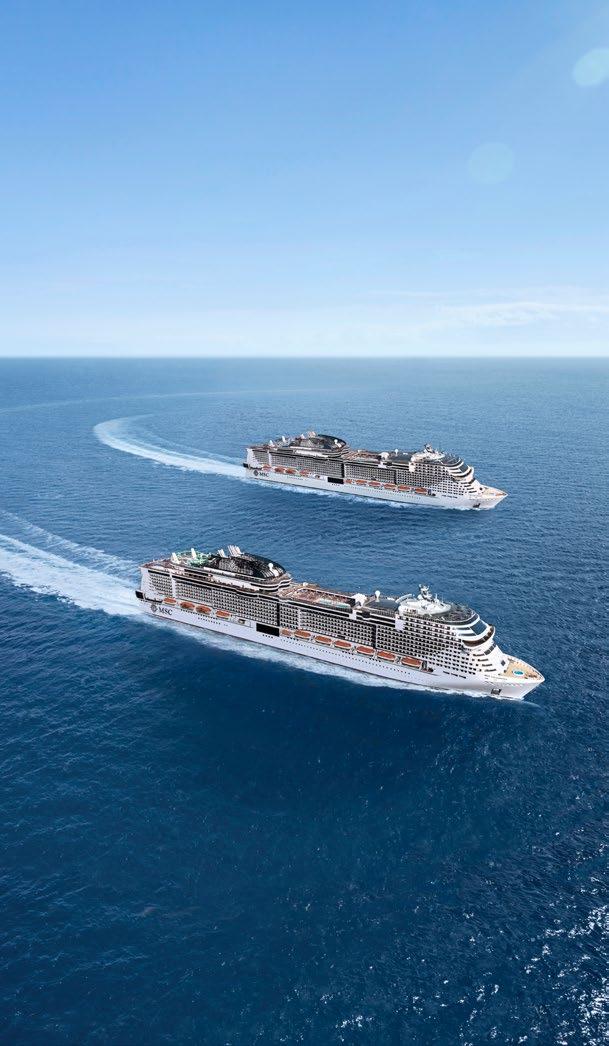
Carbon neutrality
In 2019, we announced our commitment to invest in high quality carbon offsets to make our operations carbon neutral from 2020 onwards. However, following the halting of operations in 2020, we have chosen to put this on hold and refocus our efforts on direct investment into R&D, to directly reduce our own carbon footprint.
Having recognised the increasing attention being placed on alternative cleaner fuels for the industry, our focus remains on enabling the commercialisation and deployment of these new fuels. We believe this approach will allow for the real reduction of our own carbon footprint and that of other ship operators, as well as significantly reducing local air pollutants.
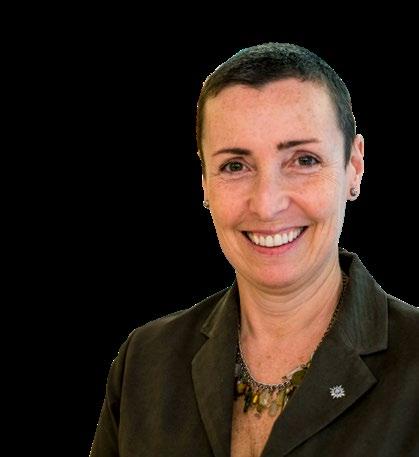
SPOTLIGHT
To achieve zero emissions, we will need to switch to new fuels.
SUSTAINABILITY ACTION SUSTAINABILITY REPORT 2020 47
LINDEN COPPELL, DIRECTOR OF SUSTAINABILITY
TAKING WIDER ACTION ON SUSTAINABILITY
Reducing our impact on marine life
The low frequency ambient noise created by vessels is known as underwater radiated noise and can have an impact on marine life. The design of the hull of MSC Grandiosa, our latest ship, together with internal equipment placement and noise suppression buffering, minimises noise and vibration levels. Bureau Veritas certified the ship as meeting its Underwater Radiated Noise (URN) notation, which also helps in reducing noise and vibration within the vessel itself, improving passenger and crew comfort.
Improving our wastewater and waste management
To better plan how we handle wastewater and waste on our cruises, in late 2019 we began reviewing and adjusting waste management activities on an individual voyage basis. This more tailored approach ensures complete control of waste management practices.
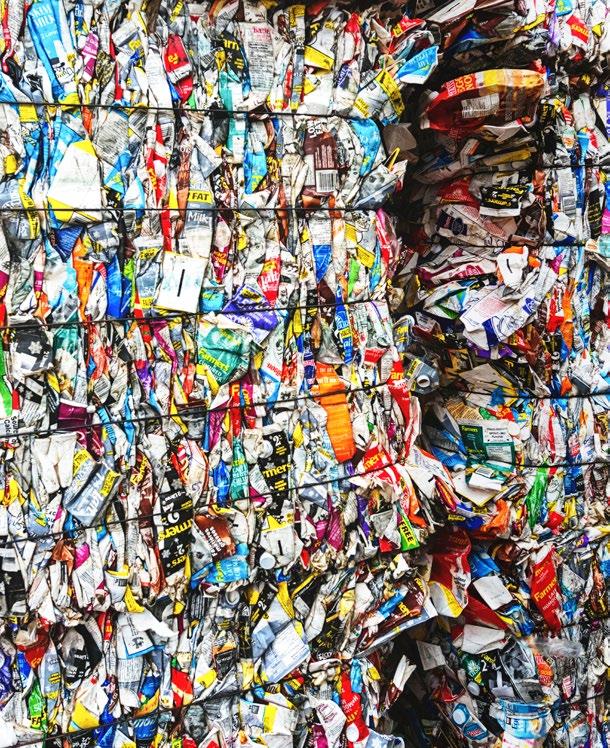
Prior to the beginning of each cruise, our dedicated Environmental Compliance Officer for the ship develops a Voyage Environmental Plan (VEP), in consultation with other shipboard officers. This comprehensive document details the way in which each shipboard-generated waste stream shall be handled, taking into consideration all applicable regulations in place on the cruise itinerary and the availability of appropriate port facilities. The plan addresses the proper handling of solid and liquid wastes, ballast waters as well as taking account of specific requirements for Emission Control Areas and restrictions in other designated sensitive areas.
The plan is reviewed and approved by the Captain. Any changes to the itinerary due to deviations, port swaps and so on, result in a revised VEP. Approved plans are submitted to the Environmental Operations and Compliance Department ashore for final review, and to verify compliance with all prevailing rules and regulations and Company standard operating procedures. The VEP is readily available as a reference guide for the Bridge and Engine Control Room officers during the voyage.
Beyond decarbonisation, we are taking action to protect marine life, manage wastewater and other waste, reduce our use of plastics and streamline our logistics, all with a view to minimising our wider environmental impact.
SUSTAINABILITY ACTION SUSTAINABILITY REPORT 2020 48
Prior to the beginning of each cruise, our dedicated Environmental Compliance Officer for the ship develops a Voyage Environmental Plan
CASE STUDY
NEW PROCEDURES FOR MEDICAL AND SANITARY WASTES
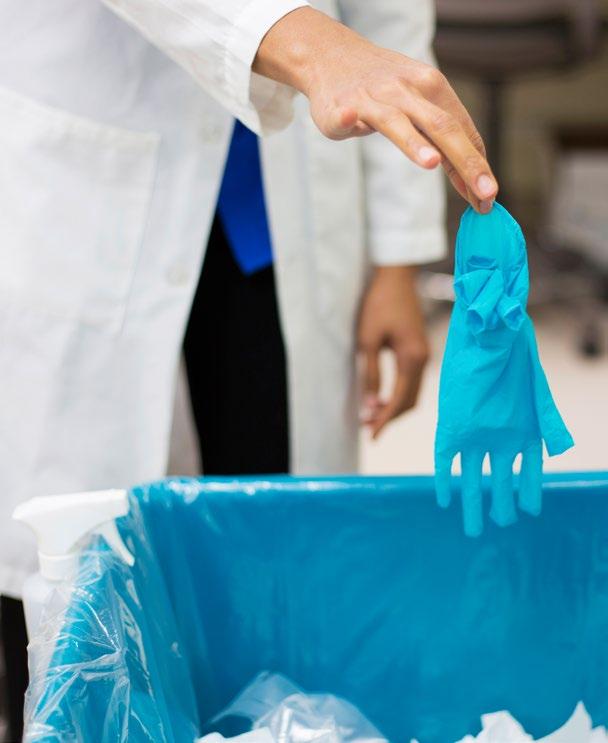
In 2020, we implemented a new ‘Waste Management Protocol for Infectious Diseases’ to ensure the safe handling, storage and disposal of increased quantities of medical and Personal Protective Equipment (PPE) waste generated onboard our ships.
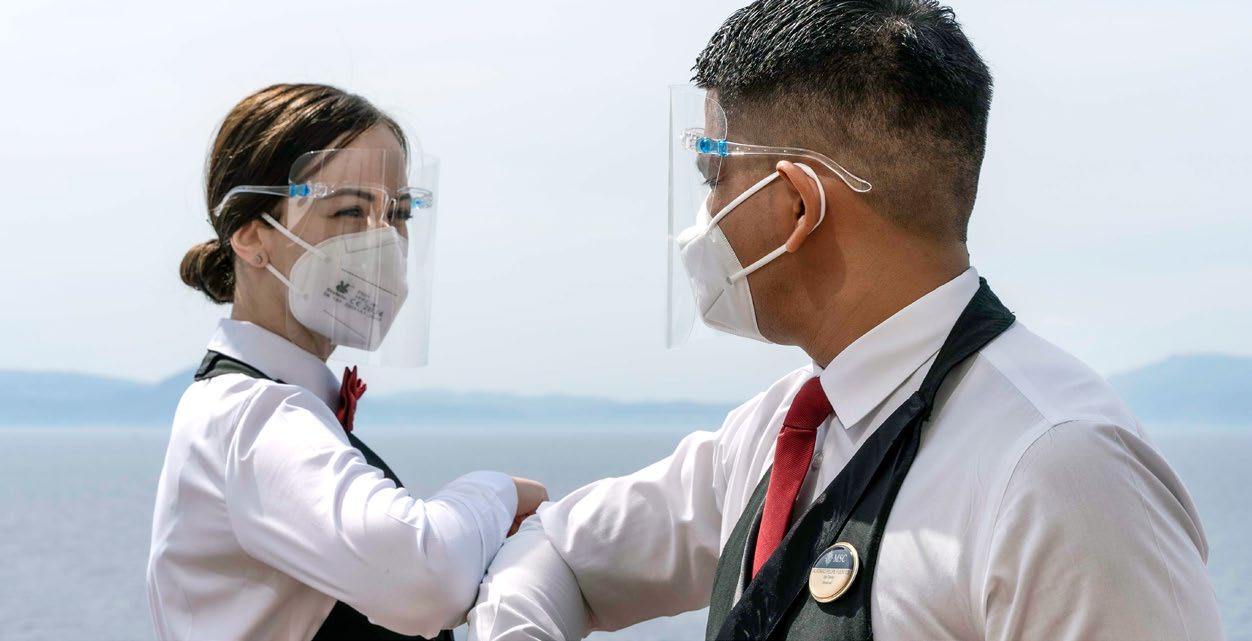
To cope with increased waste volumes, some general goods storage areas on board were redesigned specifically to accommodate medical wastes.
During restart operations in the Mediterranean, we implemented procedures and negotiated specific agreements with local organisations for the collection and disposal of medical wastes generated from testing crew and guests in port terminals prior to embarkation.
SUSTAINABILITY ACTION SUSTAINABILITY REPORT 2020 49
In 2020, we implemented a new ‘Waste Management Protocol for Infectious Diseases’
Reducing reliance on plastics
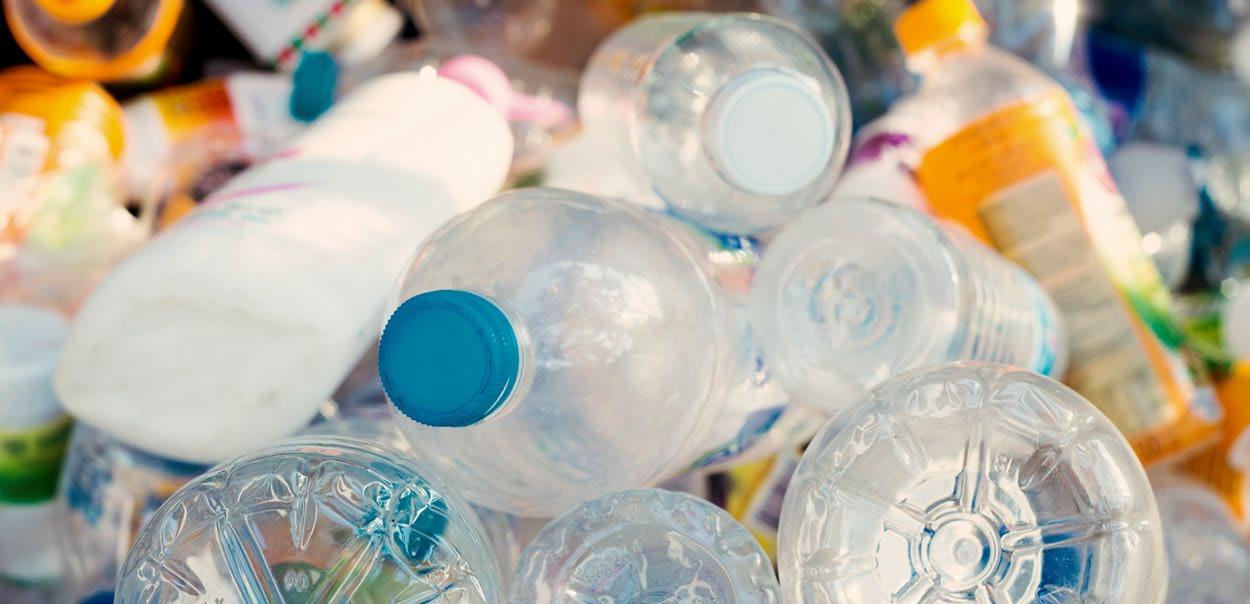
In November 2020, MSC Cruises signed the UK Chamber of Shipping’s Single Use Plastic Charter. This commits the business, along with 28 other signatories, to eliminate single-use plastics.
In 2019, we had already announced the elimination of 97 million single-use plastic items from our ship operations. In 2020, however, we introduced a number of single-use items that contain plastic to ensure the continued safety of crew and guests during the pandemic. This included: using significant quantities of personal protective equipment (PPE); serving packed lunches to crew in quarantine; and materials resulting from our testing procedures.
In addition, the return to service with our strict Health & Safety Protocol required a modification of some services. For example, we were required to provide
packed lunches for shore excursion guests, including some single-use plastic items.
However, it is not anticipated that this will impact our long-term commitment as we seek non-plastic alternatives for the long term, with strict procedures in place to ensure that any single-use plastic items or packaging is fully justified, with evidence that no viable alternatives are available.
We continue to work with our supply chain to seek plastic-free alternatives for products and packaging. For example, hand sanitizing stations are likely to remain onboard, and the packaging for many thousands of litres of alcohol-based fluid is substantial. The opportunity to procure a solid alternative, to be liquified onboard, would reduce packaging requirements considerably.
SUSTAINABILITY ACTION SUSTAINABILITY REPORT 2020 50
Strict protocols are in place to ensure that any single-use plastic items or packaging is fully justified
PROMOTING BIODIVERSITY AT OCEAN CAY
We transformed Ocean Cay from an abandoned industrial facility to a pristine destination, creating a remote, natural desert island experience for our cruise guests. Despite the challenges of 2020, the benefits of our environmentally sensitive development became apparent, as the biodiversity increased in both the water, on land and in the air.

the past. We have a sea turtle management plan in place which includes protective measures, particularly during the nesting season.
We needed to dig a channel to allow cruise ships to berth to the island. Before doing so, we carefully transplanted the coral located there and are pleased to report that the majority of it has survived. We monitor this coral and have seen increased productivity with numerous species recorded including grunts, jacks, hogfish, angel fish, lobsters, crabs, shrimps and moray eels – a positive indication of a healthy reef. Additionally, the presence of sea urchin has been noted which is important as they consume algae that can otherwise grow to such an extent that it smothers coral reefs.
Our landscaping strategy included the reintroduction of indigenous vegetation and removal of invasive species. During 2020, this led to an increase in avian wildlife and the return of many bird species, including breeding pairs, as well as an increase in migrating populations. Waterbirds including herons, egrets and oystercatchers are now frequently spotted and there have also been occasional sightings of birds of prey, including osprey and kestrels.
The Government of The Bahamas has committed to designating the waters around Ocean Cay as a Marine Protected Area (MPA), which would mean restrictions on commercial fishing and additional measures to protect and enhance biodiversity.
Our efforts to remove significant quantities of scrap metal waste from the waters around the island has resulted in dramatic improvements in the local ecology and marine life has become more diverse. Sea turtle sightings are common and nesting has been recorded on several beaches around the island in
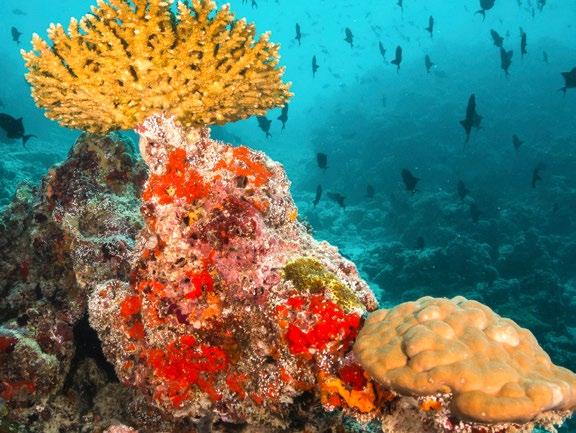
CASE STUDY
It is such a pleasure to see the wildlife and flora on Ocean Cay thriving. We have created a haven for nature.
SUSTAINABILITY ACTION SUSTAINABILITY REPORT 2020 51
ORAZIO CACI, GENERAL MANAGER, OCEAN CAY
HEALTH & SAFETY
In 2020, a total of 1,191 injuries were reported onboard, 746 by passengers, and 445 by crew. Of these, six required medical evacuation. This is less than a quarter of the injuries reported in 2019 which reflects the time our ships spent in layup.
Passenger safety
Ordinarily, before departure, all passengers must attend a safety drill and at a specific time, they must report to the assigned assembly point. Every passenger carries a cruise card or wrist band to ‘check in’ at an assembly station, so we always know how many, and exactly which, people are present in the case of a safety drill or an emergency.
Every ship has firemen aboard who are certified under the International Convention on Standards of Training, Certification and Watchkeeping for Seafarers ((STCW) and are responsible for the maintenance of Fire Fighting Appliances as per FSS Code: International Code for Fire Safety Systems & SOLAS Requirements.
Our firemen have additional duties, including night patrolling and maintaining life-saving equipment, which means we have more of them onboard our ships than other cruise companies.
All lifesaving appliances are provided in accordance with the requirements of international rules and regulations, including Safety of Navigation and International Convention for the Safety of Life at Sea, (SOLAS) and Life Saving Appliances Code (LSA).
Crew safety training
Our safety procedures are specifically designed to greatly exceed the minimum International Safety Management (ISM) Code and other IMO regulations and we cultivate a safety culture where our whole crew has direct responsibility for it.
Safety training activities are delivered by an onboard safety trainer who is certified under IMO train the trainer standards. Our company policy requires that a minimum of five hours of safety training is provided for every new embarking crew member after which they are required to pass an exam. Additional detailed training is provided for those with specific safety-related duties, such as using firefighting devices, or managing emergency procedures.
Our dedicated training unit is constantly updating and refreshing crew training to reflect lessons learned, and new requirements from CLIA or STCW. We use an interactive system to manage all crew certificates.
Medical services and public health
Our state-of-the-art medical centres provide on board assistance to both crew and guests, in line with CLIA policies. Onboard and shore-side doctors and nurses are certified professionals, available around the clock to treat many ailments directly on board.
All ships over 150,000 gross tonnage have a dedicated fully trained Public Health Compliance Officer (PHCO) assigned, and a team of travelling PHCOs constantly supports the other ships in conducting regular checks of drinking water quality, recreational water facilities and monitoring food safety processes. They share their knowledge with all crew members through classroom and on-the-job training.
For 2020, a new role was created to support the restart of operations: the Health Protocol and Compliance Officer. This role has overall responsibility for implementing the
The safety of our guests, our crew and the safety of the food we serve on board are our highest priority.
SUSTAINABILITY ACTION SUSTAINABILITY REPORT 2020 52
For 2020, a new role was created to support the restart of operations: the Health Protocol and Compliance Officer
Health & Safety protocol and reports directly to both the ship’s Captain and the CEO. This position will likely continue into the foreseeable future.

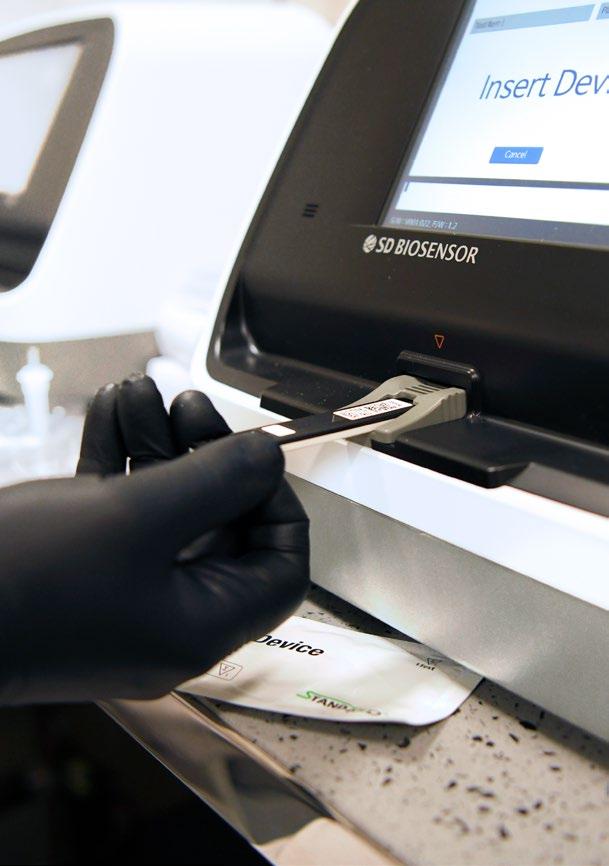
Crisis management
Dedicated crisis response management teams deal with technical issues and those that impact guests. The Maritime Support Centre in London acts immediately in the event of any onboard crisis, technical or operational, and works in coordination with the guest crisis management teams in Geneva and Naples when operational issues impact the guests. The unprecedented events of 2020 put this team to the test and proved their ability to manage challenging and ever-changing situations. They oversaw all ship movements, supported the movement and repatriation of crew, and ensured minimum safe manning of all ships.
We also have care teams on board every ship and on shore who provide emotional and logistical support to our crew, guests and their families in the event of a traumatic or unexpected event occurring.
SUSTAINABILITY ACTION SUSTAINABILITY REPORT 2020 53
In 2020, a total of 1,191 injuries were reported onboard – less than a quarter of the injuries reported in 2019 which reflects the time our ships spent in layup
CREATING A STRONG SUPPLY CHAIN
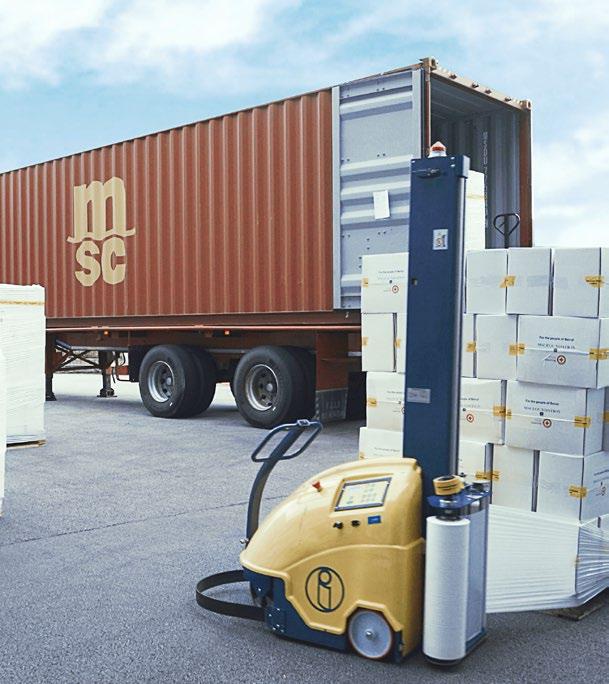
Whilst our day-to-day procurement activities were severely disrupted by the pandemic in 2020, our Supplier Compliance Programme continued to ensure the incorporation of specific clauses on ethical business conduct and sustainability in every contract and agreement.
Auditing our suppliers
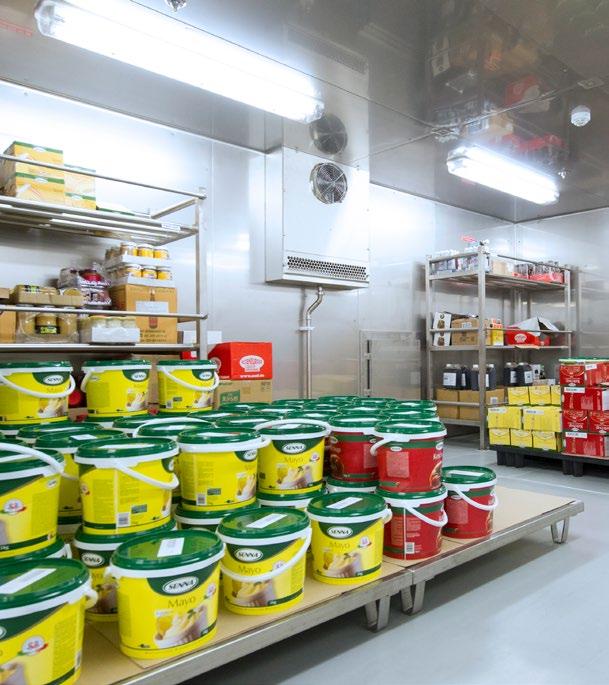
We identify any risks to our supplier standards by tracking and monitoring our supply chains. Our successful auditing programme has been in place for several years. If a supplier is found to have breached our Code of Conduct, depending on the severity of non-conformity, we might decide to terminate the agreement or work with them to understand what went wrong to put a remediation plan in place. If we do not see quick improvement, we reserve the right to terminate the agreement.
Ethics and human rights
We are committed to undertaking business fairly and to upholding all applicable laws, and we expect this of our partners and suppliers too. Our Supplier AntiCorruption, Sanctions and Forced Labour Policy clarifies our expectations regarding anti-corruption, compliance with sanctions and forced labour legislation. All suppliers are contractually obliged to comply with it. Failure to do so results in the immediate termination of the contract.
We choose suppliers who share our high ethical standards and concern for the welfare of workers, for the environment and for local communities.
SUSTAINABILITY ACTION SUSTAINABILITY REPORT 2020 54
Reducing our environmental impact
We work in partnership with our suppliers to raise environmental standards. All employees involved in any purchasing, sourcing and contracting activity must commit themselves to raising awareness among our suppliers on how to reduce any environmental impacts linked to their production chain, operation and final products.
Promoting local sourcing
Our programme, ‘Local as First Choice’, aims to localise our procurement activities and support local community livelihoods. While the benefits of local sourcing are clear where fresh food is concerned, there are also benefits for non-food items, as it reduces the distance that items must travel, lowering carbon emissions.
Optimised logisitics
With every ship taking receipt of tens of thousands of items to support hotel and ship operations at the start of each itinerary, we handle complex logistics to ensure our global fleet receives the items they need. Several actions have been taken to improve optimisation and support emissions reduction.
In 2020, we began a project to optimise the loading of trucks and containers. Testing this practice on the one ship in operation after restart demonstrated a reduction in truck usage by approximately 20%.
Additionally, we launched a project to reduce the number of suppliers delivering directly alongside the ship, achieved by increasing consolidation at our warehouses. We are also working to rationalise our consolidation practices in Europe, by dedicating warehouses to specific product categories, thereby simplifying operations and reducing local transport between these storage facilities.

SUSTAINABILITY ACTION SUSTAINABILITY REPORT 2020 55
We identify any risks to our supplier standards by tracking and monitoring our supply chains
PEOPLE
This report covers an extraordinary year when, for months, all our ships were on layup and most of our crew were at home. This meant that many of our training and development programmes were suspended or postponed. Restart operations required extensive training on the new Health and Safety Protocol whilst our technical teams used this time for skills development of deck and engine crew.
Training and development
During 2020, our training focus was on preparation for restart, with detailed training modules to reflect the extensive new protocol in place on the ships. Further training is provided onboard and we increasingly use e-learning modules, available to all via the crew members’ own smart phones or via tablets available on board each ship, to ensure continued professional development.
Deck and engine teams are required to operate complex technical equipment. They go through comprehensive technical training and certification, in accordance with all applicable rules and regulations and beyond. Despite the challenges of 2020, extensive training continued, both onhore and for the deck and engine teams onboard.
The Bridge Resources Management (BRM) training, which focuses on ensuring and enhancing the safety culture, continued with remote learning for crew onshore. We introduced specific BRM programmes covering emergency response and introduced Engine Resources Management training for engine officers. Other remote training focussed on technical and software management and use. In total, deck and engine officer remote training amounted to 25,452 person hours.
Additionally, Fleet Operations Inspectors spent a total of 58 days onboard the ships. Each visit covered ship arrival and departure, plus a minimum of two hour’s training each day on a specific topic for the entire bridge team. Additional time was spent training available officers on instruments and procedures.
CAPTAIN PIERLUIGI BARRILE, VICE PRESIDENT FLEET OPERATIONS
To support with the restart, two visits were made by the Fleet Safety Trainers, delivering 140 hours of training to support crew emergency preparedness and assist during restart phase.
We used the time during layup for our deck and engine officers to develop the skills needed to ensure high levels of safety and competence on our technically complex ships, with over 25,000 person hours of remote training in 2020.
SUSTAINABILITY ACTION SUSTAINABILITY REPORT 2020 56
Creating leaders
Our Competency Model defines competencies and behaviours expected from our leaders. Each competency has a set of Key Behavioural Indicators supporting managers to successfully contribute to the MSC Cruises Vision and Values.

Our Leadership Development Programme prepares shoreside managers for leadership positions. The programme is divided into three levels and managers attend subsequent modules on an annual basis. Whilst suspended due to the pandemic, the plan is to reenergise this with full resumption of commercial operations.
The shipboard promotional process within the company must strictly comply with the parameters set within our career paths, such as achieving Individual Performance Management (IPM) goals, sufficient language levels, and completing department specific training. Promotion Committees, for all managerial positions on board, ensure diversity within the management community.
Diversity and Inclusion
With 124 nationalities across the business, we have a truly international workforce that essentially represents every creed, colour and background. We recognise that many of our employees are LGBTQ+.
At present, 53.7% of our shoreside employees and 19% of onboard crew are female. To improve gender balance across all areas of our operations, we have made a commitment to reach gender equality across our fleet.
Crew wellbeing
We manage our crew in full compliance with the International Labour Organization’s Maritime Labour Convention, 2006 (MLC) when it comes to assigning working hours and leave. We always take care of repatriation costs and arrangement for all our crew for their shore leave and, before they disembark, make all possible effort to provide certainty on when and where their next contract will begin.
Our recognition program, MSC People, celebrates monthly the outstanding crew who embody our values. Listening to the needs of our crew is essential to their wellbeing and our crew happiness, and we reach out to them frequently, including through our crew agencies and with surveys, resulting in the creation of supporting information on topics they are concerned about and activating changes to best address their needs.
Discipline
Our Disciplinary Policy complies with the MLC regulations and meets or exceeds applicable collective bargaining agreement requirements. It provides guidance on the process of implementing disciplinary action, whilst the MSC Cruises’ Shipboard Rules of Conduct provides guidance as to what level of disciplinary action is appropriate.
SUSTAINABILITY ACTION SUSTAINABILITY REPORT 2020 57
MSC FOUNDATION
The MSC Foundation is an independent non-profit organisation, established by the Aponte family to lead, focus and advance the MSC Group’s conservation, development and humanitarian commitments.

ENVIRONMENTAL CONSERVATION
COMMUNITY SUPPORT
EDUCATION
EMERGENCY RELIEF
Emergency support
We led 13 emergency relief initiatives in 2020 including extensive COVID-19 prevention and mitigation actions in some of the most impacted countries including the donation and distribution of antigen tests, high-quality medical masks and food to support national health efforts. The MSC Foundation also provided relief supplies to people affected by the Beirut port blast and those communities affected by natural disaster in Central America.
SUSTAINABILITY ACTION SUSTAINABILITY REPORT 2020 58
Supporting those in need
Beyond the pandemic, MSC Foundation also continued its crucial work helping to improve the environment, for example, by launching the pioneering Super Coral Campaign in the USA to save coral reefs and mitigate the impact of climate change, and producing eco-friendly bricks from recycled plastic waste to build 21 classrooms in the Ivory Coast while empowering women (under a programme that won a UNICEF Global Inspire Award).
In Europe, the Foundation contributed to teaching ‘care for the seas’ in Italian schools in cooperation with the organisation Marevivo. In Germany, the Foundation provided funding to enable the planting of endangered hemlock water fennel on the River Elbe in collaboration with the Elbe Habitat Foundation.
MSC Foundation also continued to improve the lives of children and people in need by supporting communities, such as by providing healthcare support to more than 4,000 direct beneficiaries in Haiti with the Andrea Bocelli Foundation, and by enabling the treatment of more than 3,000 children in Malawi for Severe Acute Malnutrition.
CASE STUDY
HELPING THE MOST VULNERABLE
As the pandemic spread, MSC Foundation provided support for local and national initiatives across every continent, helping to mitigate the impact of COVID-19 on the most disadvantaged groups.

The sudden halting of operations in March, for example, resulted in 97 containers of food and other items, ordinarily required for our fleet, being returned to our warehouse in Genoa. For those items with limited shelf life, we worked with local charities to ensure the swift distribution of food items to those in need.
In Italy, for instance, in coordination with MSC Cruises, the Foundation donated roughly 40 tonnes of perishable goods to NGOs, hospitals and other institutions. In France, MSC Cruises and the MSC Foundation sent six tonnes of food to the Marseille Red Cross, a local food bank and the city’s Marine Fire Service.
The MSC Foundation has taken swift action since the beginning of the pandemic to provide prompt support worldwide to combat COVID-19 and help mitigate its impact on disadvantaged groups. Our efforts will continue for as long as the pandemic is a threat.
CAPT. GIANLUIGI APONTE, CHAIR OF THE BOARD, MSC FOUNDATION
SUSTAINABILITY ACTION SUSTAINABILITY REPORT 2020 59
Operations 2018 2019 2020 Number of ships 15 17 17 Operating days 5,189 5,704 1,543 Available lower berth (ALB) days 15,198,506 17,379,840 5,011,719 Total passengers carried 2,367,527 2,751,216 658,247 Fuel/Emissions (1) 2018 2019 2020 Total fuel consumption (ships) tonnes 571, 526 650,306 290,596 CO2 tonnes 1,786,421 2,031,639 908,393 Fuel consumption tonnes – cruise operations only (2) Not applicable Not applicable 160,217 CO2 tonnes – cruise operations only (2) Not applicable Not applicable 499,818 CO2 gr per ALB Km – cruise operations only (2) 244 238 251 SOx gr per ALB Km – cruise operations only (2) 2.37 1.47 1.21 NOx gr per ALB Km – cruise operations only (2) 4.18 4.10 4.43 Number of ships with operational hybrid Exhaust Gas Cleaning Systems (EGCS) 7 9 9 Number of ships with selective catalytic reduction system (SCR) 0 0 1 Water 2018 2019 2020 Potable water (litres/person/day) 201 167 230 Potable Water Produced (m3) 3,538,428 3,476,049 1,207,031 Potable Water Bunkered (m3) 753,997 839,660 319,775 Wastewater discharged to sea 2018 2019 2020 Treated Blackwater (m3) 1,678,928 276,273 85,481 Untreated Blackwater (m3) 58,978 73,243 765 Greywater (m3) 1,763,702 1,326,098 386,172 Wastewater treated using AWTS (m3) Not available 2,885,040 731,768 Percentage of wastewater treated using AWTS Not available 63% 61% Number of ships with AWTS 7 9 9
Contact us sustainability@msccruises.com SUSTAINABILITY REPORT 2020 60
DATA TABLE
Greenhouse gas emissions are calculated based on the IMO Guidelines, supplier records and internal standards, then summarized and presented for this report. Emission factors used in this report are in accordance with The United Nation’s Climate Registry Intergovernmental Panel on Climate Change (IPCC) Fifth Assessment Report (AR5).
The annual total amount of CO2 is calculated by multiplying annual fuel oil consumption and conversion factor for the type of fuel, as required by IMO (MEPC.1/Circ.684 - and MEPC.245(66))
The SOx calculations take into account the sulphur content of the fuel consumed and the emission factors, considering the usage of the exhaust gas cleaning system (EGCS) to process emissions using deSOX chemical reactions.
With reference to IMO guidelines including MARPOL 73/78 Annex VI, MEPC 74 and the Study of GHG Emissions from Ships and ISO 8178, the emission factors used to statistically calculate NOx value for HFO/LFO is 78 kg per tonne of fuel consumed and for MGO is 80 kg per tonne of fuel consumed. NOx abatement using Selective Catalytic Reduction systems (SCR) on board is taken in account.
(2)
For the purposes of calculating emissions per ALB Km, only the fuel for commercial cruises during 2020 was used, thus discounting fuel use during warm lay up.
(3)
Based on number employees on December 31st 2020
(4)
Based on number of crew onboard February 29th 2020
Solid waste/Recycled material 2018 2019 2020 Total waste removed - excluding recyclables (m3) Not available Not available 41,234 Total recycled waste (m3) 25,792 26,352 6,794 Glass (m3) 5,569 6,897 1,712 Aluminium (m3) 820 1,418 318 Plastic (m3) 9,318 6,263 1,654 Paper (m3) 7,603 9,393 2,083 Cooking oil (m3) 97 147 56 Other (m3) 2,380 2,234 971 People 2018 2019 2020 Total employees shoreside Not available 2,608 2,142 (3) Shoreside: % of female employees Not available 55% 53.7% Shoreside retention rates Not available 89.7% 76.9% Average training hours per employee (shoreside) Not available 49.7 8.2 Total employees shipboard Not available 19,860 19,789 (4) Shipboard: % of female employees Not available 18% 19.4% Retention rates (shipboard) 87% 89% Not available Average training hours per employee (shipboard) Not available 36.3 hours Not available
(1)
SUSTAINABILITY REPORT 2020 61
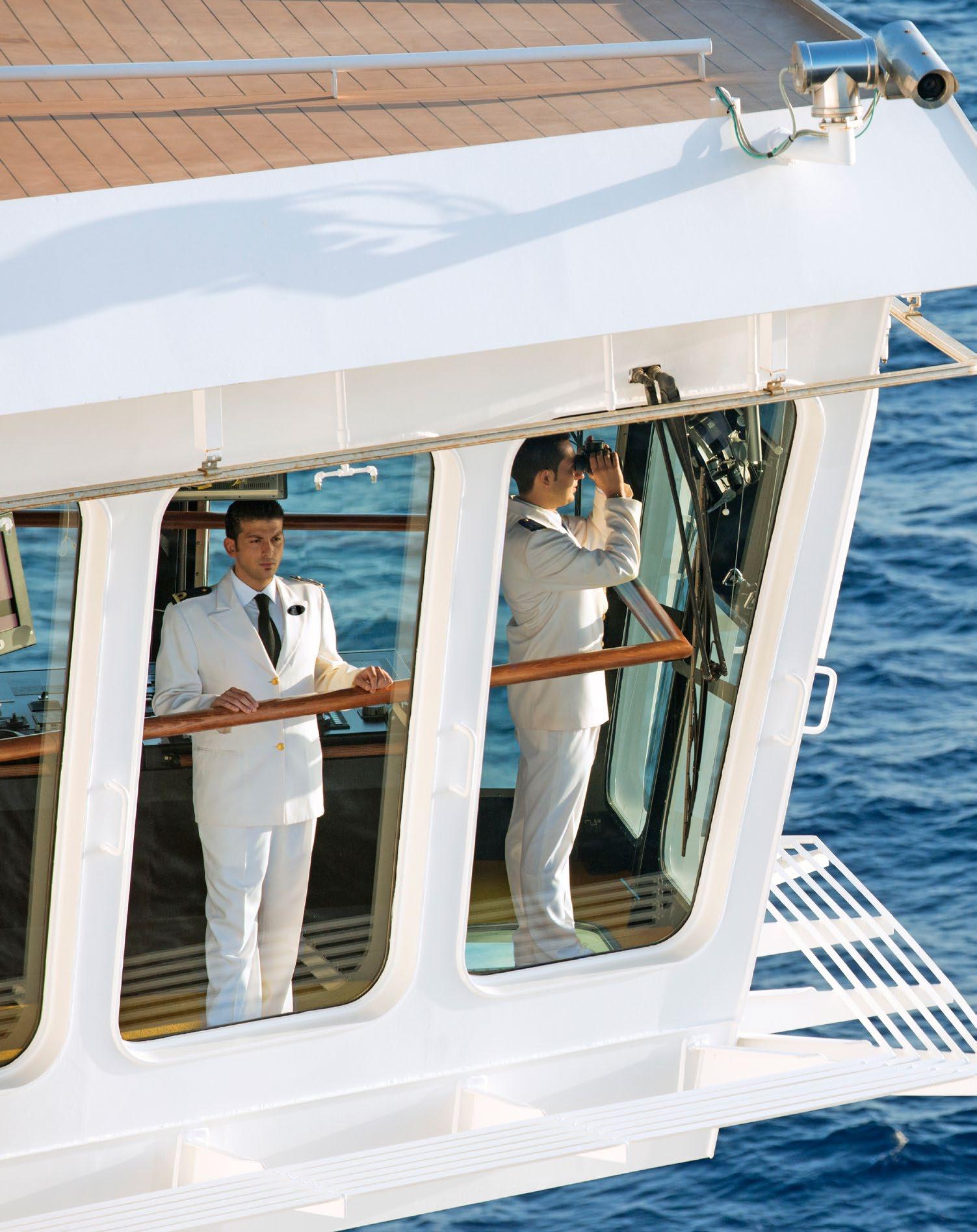
I am enormously proud of how the MSC Cruises team has navigated through the global COVID-19 crisis. The past year was incredibly challenging, but we weathered the storm together, and are all looking forward to welcoming passengers back onboard. Our industry-leading Health & Safety protocol means we can offer people one of the safest possible holiday options on earth.
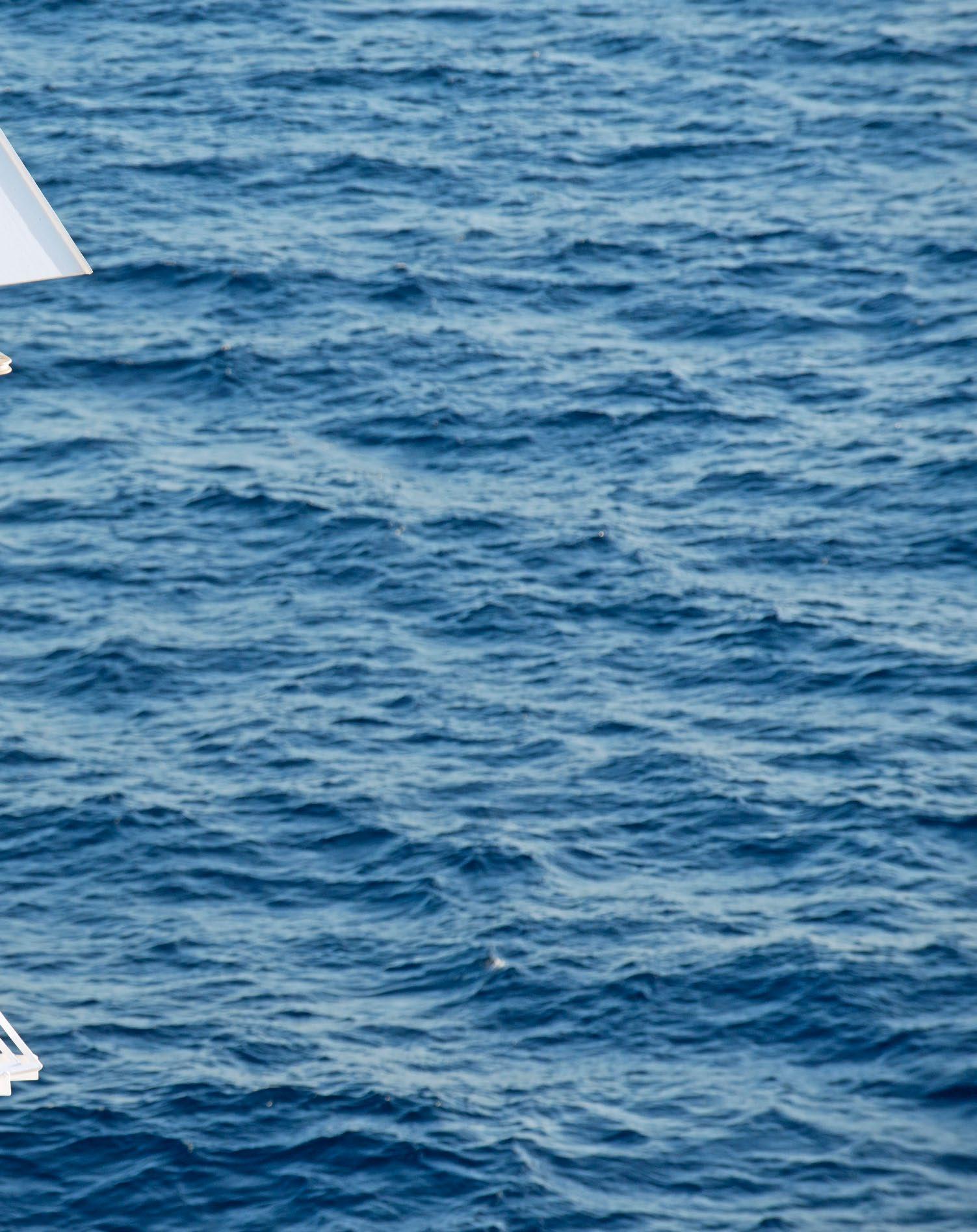
The threat from viruses is not our only challenge: we continue to explore ways to further reduce the environmental impact of our operations, and to ready our business for a lower carbon future. We have a social mission too, and remain committed to growing a gender-balanced workforce.
Overall, it is our strong intention to be a leading force for good in the world.
PIERFRANCESCO VAGO, EXECUTIVE CHAIRMAN
© MSC Cruises SA, June 2021 msccruises.com

 PIERFRANCESCO VAGO, EXECUTIVE CHAIRMAN
PIERFRANCESCO VAGO, EXECUTIVE CHAIRMAN



































































